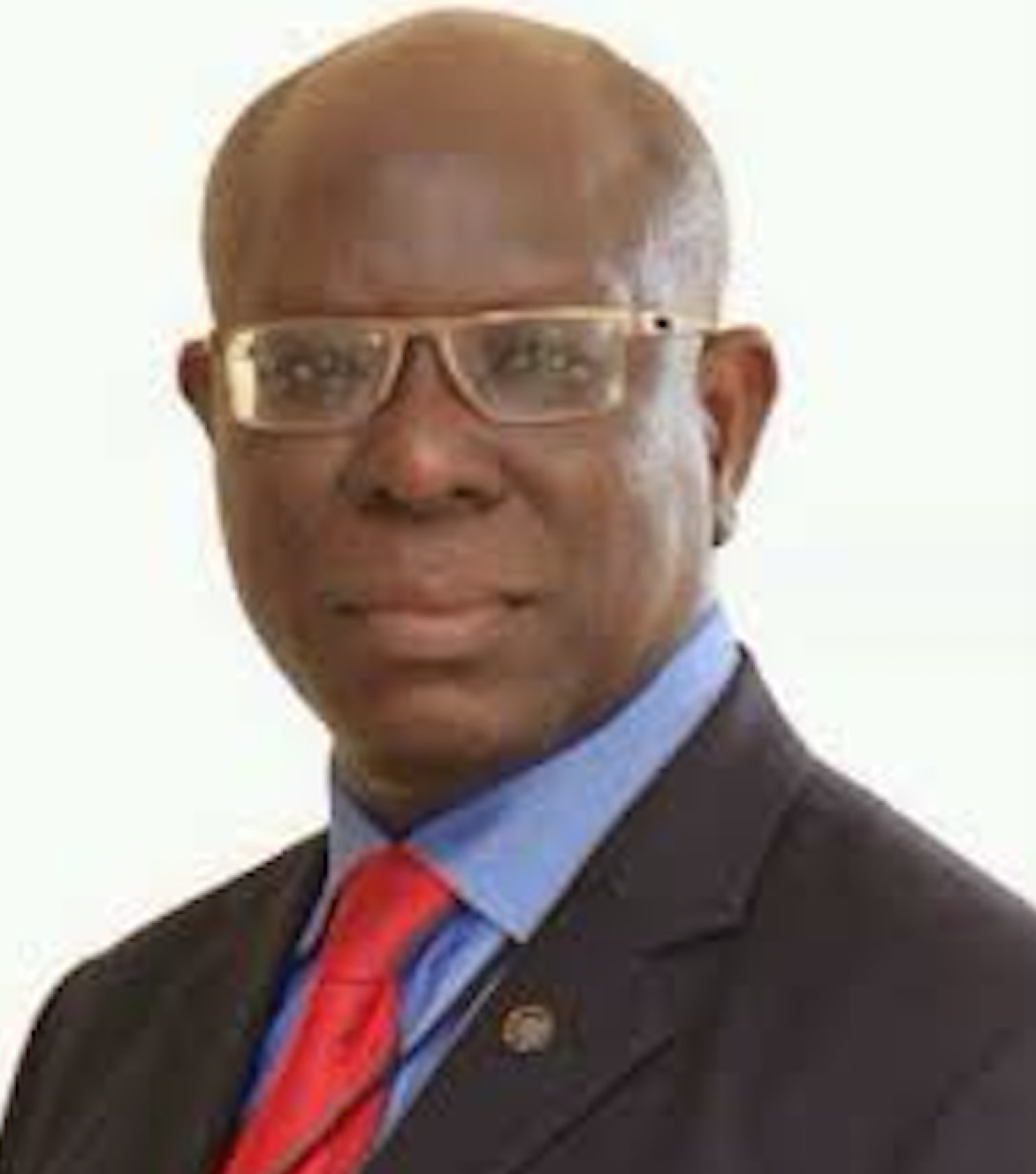
Alioune Badiane (Honorary President)
Director (Rtd) Programme Division UN-Habitat/President, The Urban ThinkTank Africa -TUTTA, Senegal
Dr.Badiane is a Senior Urban and Regional Planner with extensive working experience in both central and local governments and at the international level. He has over thirty five years of accumulated experience working for the United Nations as well as for Government Ministries in Senegal related to: Economic Planning, Housing, Decentralization ,Urban development and Environment. Dr.Badiane served as Director of Dakar City Planning, Principal Policy Advisor to the Mayor of Dakar, and as elected Municipal Councilor and Chairman of the Planning and Environment Commission in home town Meckhe in Senegal. He joined UN-Habitat as Chief Technical Adviser- CTA and International Human Settlements Adviser to the Government of Haiti in 1991. He was appointed by UNDP,World Bank and UN Habitat as Regional Coordinator of the Urban Management Programme- UMP in 1992. Director of Regional Office for Africa and Arab States of UN Habitat between 1999 and in 2011 From 2011 until oct 2016 when I retired , I was the UN Habitat Director of Programme Division. During his long career and service with the UN, Dr.Badiane has directed, managed and coordinated United Nations global ,regional and national projects and programmes in Africa, Asia the Arab States and in the Caribbean regions. Dr.Badiane studied economics at the Senegal National School of Economics and later graduated from Laval University Canada and attended his Post Graduate Studies at the Department of Urban Affairs, City University of New York at Hunter College. Dr.Badiane was awarded title of Doctor Honoris Causa of the University of Minna of Niger State . He is currently the President of The Urban Think Tank Africa -TUTTA for the implementation of the new urban agenda in Africa. Dr Badiane is the Hon President of the International Council for Canada China and Africa-Icccasu and the Co-founder of the RESAUD network based in Montreal . He is also as Chair of the Advisory Council of the African Forum for Urban Safety -AFUS based in Durban and Special Advisor to the United cities and local Governments of Africa! UCLG-A . Dr Badiane is closely collaborating with government and city partners as well as bilateral and multilateral institutions such as UN Habitat, African Union ,the World Bank, AFDB and UCLG-A to implement the New Urban Agenda in Africa.
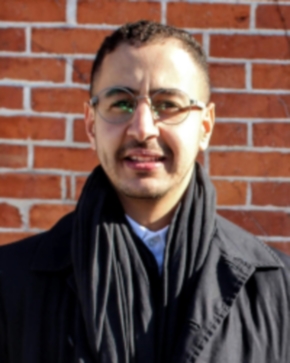
Abdelhamid Benhmade
Chair for Africa relations of ICCCASU
Ph.D. in Development Studies at the University of Ottawa, Canada
Speech:
Abdelhamid Benhmade is currently pursuing a doctoral degree in development studies at the University of Ottawa. He specializes in development and the private sector.Benhamdefocuses on two main research areas: geo-economics of global cities and international entrepreneurship. His passion for international affairs led him to conduct a thesis on emerging and developing global cities and their functions in the era of globalization.
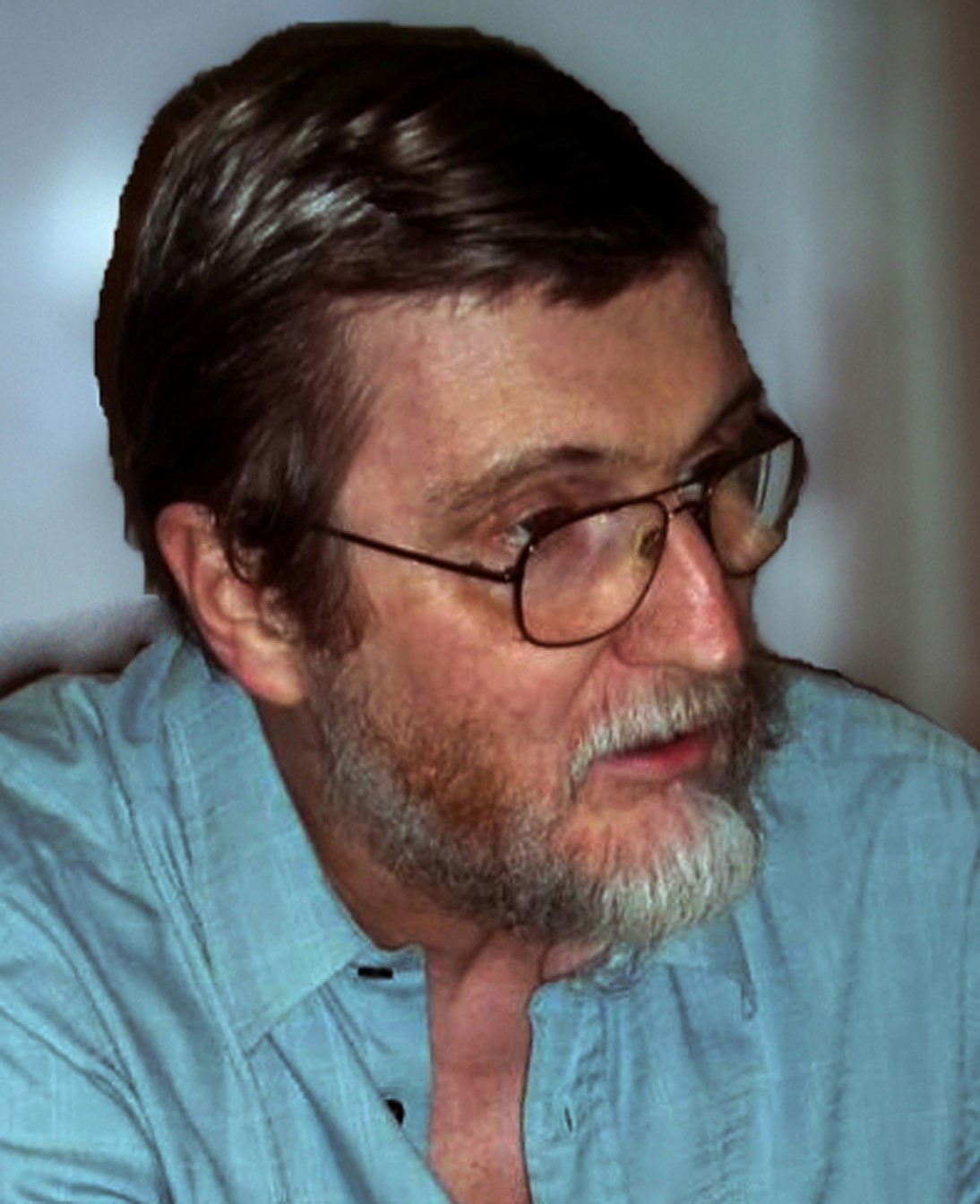
Allan Cain
Founding Director of Development Workshop Angola
Speech:
Allan Cain O.C. is the founding director of Development Workshop Angola and has been a Visiting Professor at the School for International Development and Global Studies at the University of Ottawa. He is an architect, specialist in project management, participatory planning, sustainable urban development and water & sanitation. He has lived and worked in Africa for the last 35 years and has acquired a deep understanding of the local environment and development initiatives. He has a degree in Environmental Studies, did his professional studies at the Architectural Association (London, UK) and further specialist studies at Harvard University and Bolder, Colorado. Allan Cain was awarded an Order of Canada in 2004 for his work in international development and contribution to peacebuilding in Angola. He has also won several other awards for his work in international development. He has over 35 years of professional experience in developing countries. He has worked as a consultant and lead research projects for the World Bank, UN Habitat the European Union and other international organisations. He is the DW project leader on the International Development Research Centre supported programme on Climate Change, Flooding and Water-Supply in Angola's Coastal Cities. He has led projects, beneficiary and affordability assessments; indicator mapping; social and environmental impact assessments; and policy and advocacy programs. Allan has lectured at universities in Canada, China, Angola, Norway, USA, South Africa and UK. He is a member of the advisory board for Environment & Urbanism Journal of the International Institute for Environment & Development (IIED) and on the boards of several other development institutions. His articles and papers have been published widely in international journals.

Huhua Cao / 曹沪华 (Co-President)
Full Professor, University of Ottawa, Ottawa, Canada
Dr. Huhua Cao is a cross-appointed Full Professor within the Department of Geography Environment and Geomatics and the School of International Development and Global Studies at the University of Ottawa in Canada. He specializes in urban studies and International development with the use of geostatistical and spatial methods. In recent years, Dr. Cao’s research has focused on engaging urban indigenous and ethnic minority peoples in urban contexts. He has directed various international research projects that have received significant funding from Canada, China, Cameroon, and the European Union. Professor Cao has also written numerous articles and books related to urban and regional development while collaborating with academics throughout the world. Professor Cao has also published almost 100 books, chapters, articles and reports related to urban and regional development while collaborating with academics throughout the world. Since 2014, Dr. Cao has worked closely with the United Nations Human Settlements Programme (UN-Habitat) to organize a series of International Conference on Canadian, Chinese and African Sustainable Urbanization (ICCCASU). ICCCASU is an international Think-Tank for exchange and cooperation on issues relating to sustainable urban development (www.ICCCASU2019.ORG or www.ICCCASU.ORG).
联合国人居署“加拿大,中国和非洲可持续城市化国际会议(以下简称ICCCASU)”联席主席曹沪华博士现任加拿大渥太华大学(University of Ottawa)地理学系及国际发展与全球研究学院终身教授,博士生导师。曹教授于1983年获得上海同济大学城市规划学士学位,随后在上海市建筑设计研究院(1983-1991)担任建筑师。他1994年在加拿大拉瓦尔大学(Laval University)获得建筑学硕士学位,1998获得城市地理学博士学位。曹教授专注于城市地理学,尤其是运用信息统计学方法和地理信息系统(GIS)对城市发展规划进行研究。近年来,曹教授的研究重点关注基于互联网的参与方式,吸引城市原住民及少数民族参与城市发展决策。曹教授先后主持加拿大与欧盟、非洲, 以及中国科技部合作的多项重大项目,共发表论文与著作100余篇/部。ICCCASU创建于2014年,旨在通过与联合国人居署, 加拿大,中国及非洲等政府,非政府以及学术研究等机构的密切合作, 探讨中国及非洲在城市化进程中面临的挑战,借鉴加拿大和中国的经验提供新的合作平台及模式,并于2015年在加拿大渥太华举办了第一届大会 (ICCCASU I) 。2017年底,在喀麦隆政府住建部大力支持下,第二届中国、加拿大和非洲可持续城市化国际论坛 (ICCCASU II) 在喀麦隆首都雅温得胜利召开。作为ICCCASU联席主席,曹教授正在积极领导筹备第三届中加非可持续城市化国际论坛,计划将于2019年在中国举办。
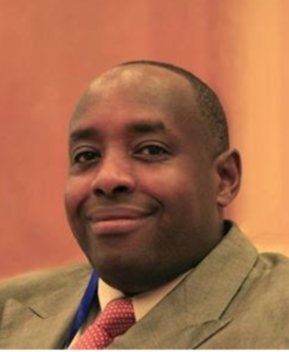
Jean-Marie Cishahayo
Founding Member of the ICCCASU
Affiliate Researcher at the University of Ottawa, Centre on Governance Member of the African Research Group (Ottawa)
Speech:
TBD
Jean- Marie Cishahayo has around 25 years international development experience in 4 continents (Africa, Asia, Europe and North America). He is the Founding Member of the ICCCASU: International Conference for Sustainable Urbanization in Canada, China and Africa Sustainable Urbanization, a collaborative project between UN-habitat and the University of Ottawa. He is an Affiliate Researcher at the University of Ottawa, Centre on Governance, member of the African Research Group (Ottawa). He did his post-graduate studies in Law and International Political Economy at Fudan University in Shanghai and a post graduate courses in Human geography at the University of Ottawa. For more than 20 years, he has been Senior Expert Adviser, working consulting and collaborating with several United Nations agencies (UN-Habitat, UNITAR, WIPO, ILO, UNIDO, UNDP) on several local economic development projects, capacity building, SMEs , Entrepreneurship , investment, technologies and high tech industrial parks in China and Africa.
He is interested in climate change issues, capacity building, resulted - based local governance, environment, green growth, smart, inclusive and resilient cities, public program evaluation and circular economies. He speaks French, English, Chinese, Swahili, Kirundi and Kinyarwanda.
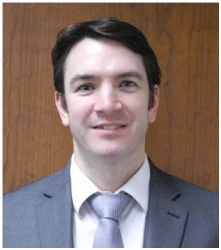
Ian Cooper
PhD., Senior Regional Manager, Regional Operations, Public Health Agency of Canada
Thematic Areas 1:
Health crises in cities: learning from the past and planning for the future
Ian Cooper, PhD. joined the Public Health Agency of Canada as Senior Regional Manager, Regional Operations in August 2020. Before joining Public Health, Ian was Manager of data analysis and results reporting for Reaching Home, the Government of Canada’s homelessness program. He also has significant experience in the area of regional economic development, and has held a variety of positions at the Federal Economic Development Agency for Southern Ontario. Ian holds a MA, Sociology, from the University of Saskatchewan, and a MA, Social Policy, from Xi’an Jiaotong University in China. His PhD (Sociology, Carleton University) focused on urbanization, labour migration and inclusive development.
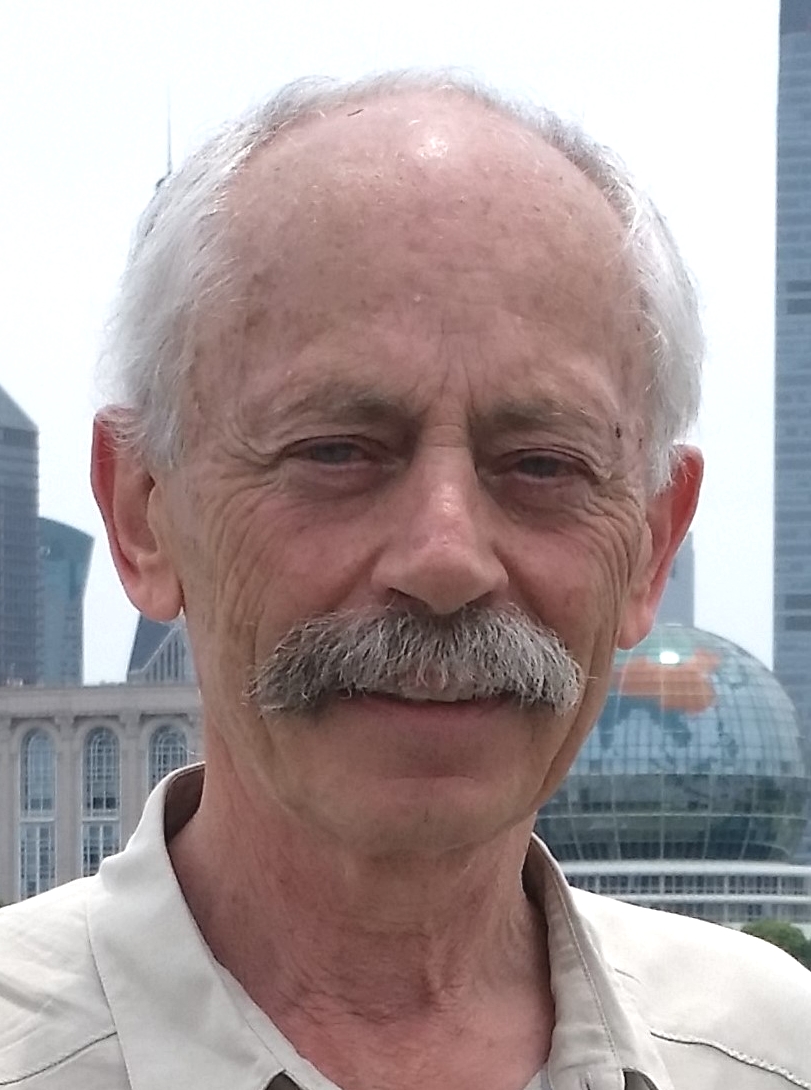
David Covo (Vice-President)
Professor, McGill University, Canada
Thematic Areas 6:
Housing access, affordability and finance: comparative strategies, best practices and lessons learned from Canada, Africa and China
David Covo, Professor is an architect and former Director of the Peter Guo-hua Fu School of Architecture at McGill University, where he has been teaching since 1977. His teaching responsibilities cover design, architectural drawing and sketching, geometry, and universal design, and current research addresses topics in architectural representation, housing and urban rehabilitation in China, and the work of Canadian architect Arthur Erickson. He served as the Professional Advisor for the 2014, 2017 and 2019 editions of the RAIC International Prize, and was also a member of the juries for the Canadian Museum of Human Rights in Winnipeg, the Canadian High Arctic Research Station in Cambridge Bay, and the transformation of the Musée d’art contemporain in Montreal. He is a Fellow of the Royal Architectural Institute of Canada, a member of the Order of Architects of Quebec, and Professor Honoris Causa at Ion Mincu University of Architecture and Urbanism in Bucharest.
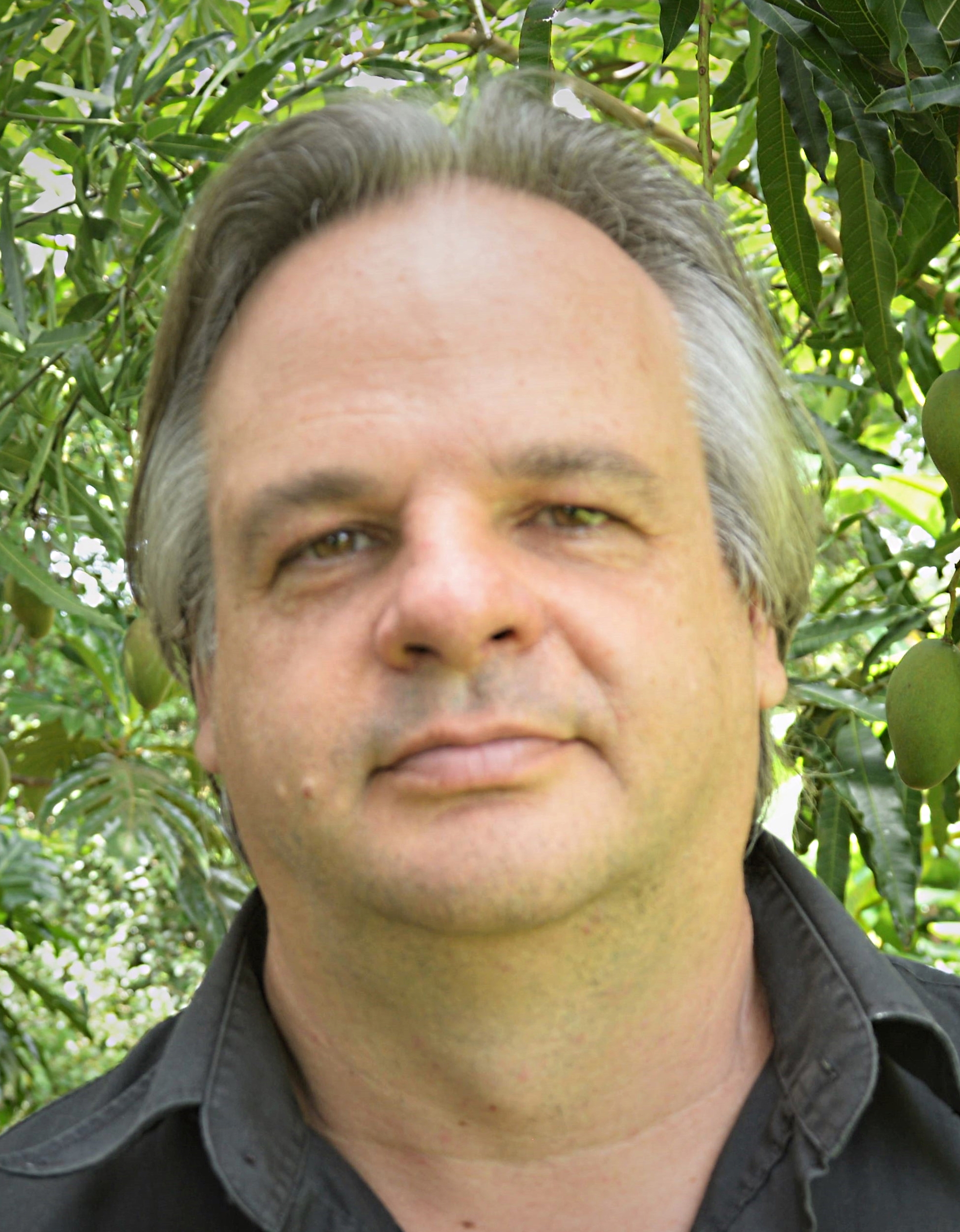
Olivier Dehoorne
Professor, University of the Antilles, Guadeloupe, FWI and Associate Professor, Université Laval, Quebec, Canada
Olivier Dehoorne, is Professor at the University of the Antilles (Guadeloupe, FWI) and associate professor at Université Laval (Quebec, Canada). He is editor of the Journal Etudes Caribéennes. Author of about sixty articles and co-director of five books, his main works focus mainly on the themes of tourism and mobility. His preferred research areas are the Caribbean space, Asia, small islands. It addresses tourism from the perspective of spatial planning, resource management, with questions on development issues, geopolitics and power issues.
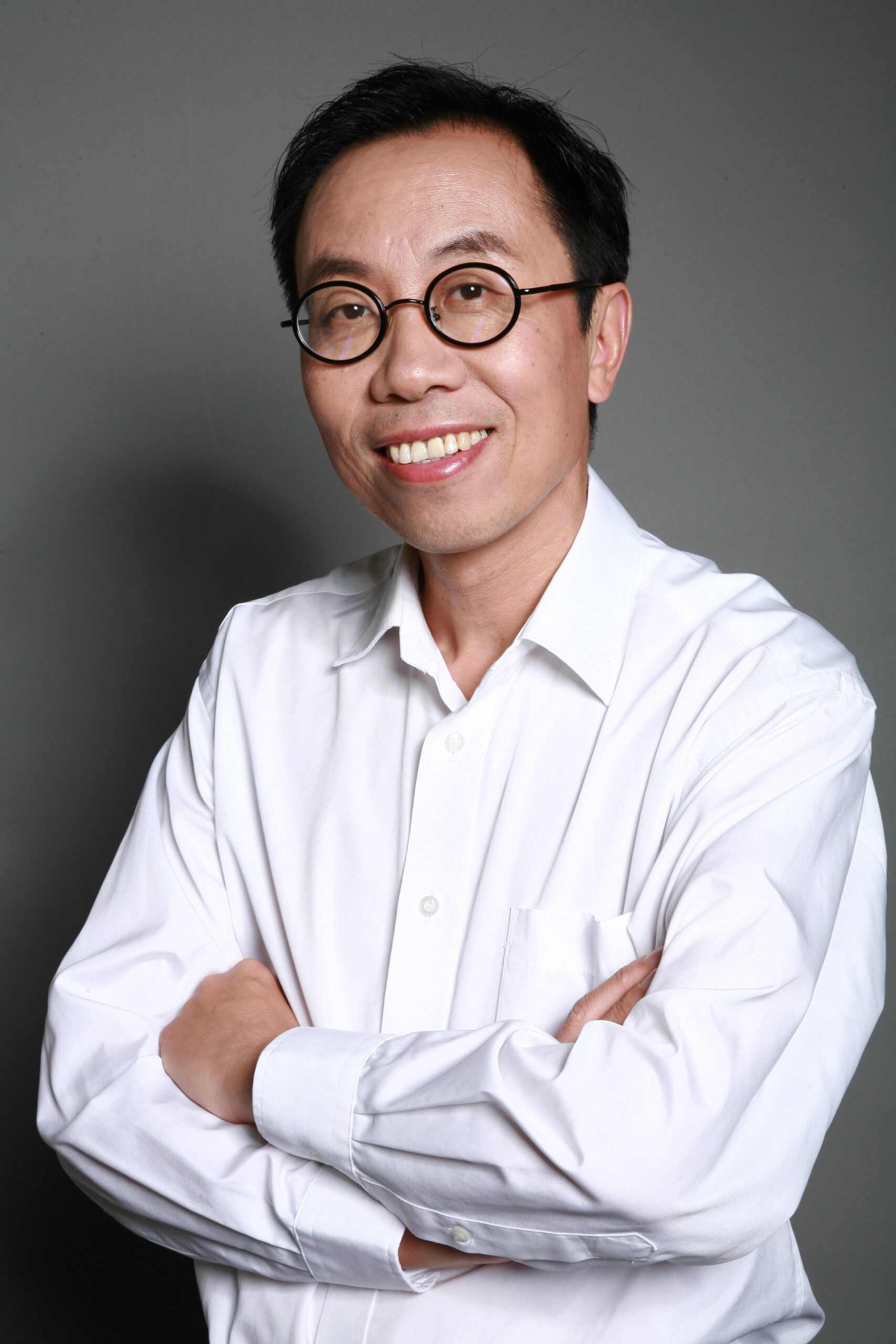
Peter Guo-hua Fu / 傅国华 (Vice-President)
President of KFS Architects Inc.
Ph.D. of Architecture
Professor of Practice;Peter Guo-Hua Fu School of Architectural, McGill University
Peter Guo-hua Fu was born in Shanghai, China, he studied architecture and urban planning, starting from 1980 at College of Architecture and Urban Planning Tongji University and McGill University School of Architecture, Canada, received Ph.D of architecture, master of urban planning.For the first decade of his career, he started as architect at Pertroff Partnership Architects(Canada, Toronto) and then moved to Zeidler Roberts Partnership Architects (Canada, Toronto); after that, Peter joined B+H Architects, Toronto as senior architect, vice president. Today, he is president and chief architect at KFS Architects Inc. Canada; director of KFS Dance & Musical; professor of practice at Peter Guo-hua Fu School of Architecture, McGill University; professor at School of Design, Shanghai Jiao Tong University. For 20 years, Mr. Peter Guo-hua Fu has led many urban design projects, including one of the seven design proposals of 2010 Shanghai Expo, Shanghai “North American Style Town” Planning, Shanghai Qingpu Central Area Planning and Implementation, Russia St. Petersburg Baltic Pearl, Hainan Sanya 1# Yalong Bay Planning. Design projects led by him including public buildings, residential buildings, interior design located in many major cities in China like Shanghai. He has many extraordinary design works, acquired many noble awards: one of “Top 20 Most Influential Architects in China” by CIHAF, 2004; top one of “Most Welcomed Architects in Shanghai” by newspaper publisher in 2004. Since 2017, the famous McGill University, Canada, which has a history of over 200 years, named its school of architecture with 120 years history, as Peter Guo-hua Fu School of Architecture, permanently, and invited him as professor of practice. In 2014, Mr. Peter Guo-hua Fu participated in performing field, committed himself in combining architecture and drama, “drama” and “stage”. Three years after he designed the Music Box by KFS using recycled containers and acquired national patent, he wrote and directed three musicals themed with architects, performed at the Music Box by KFS in Shanghai Culture Square, “Memories of the Valley”, “My Albert”, “Exchange Students”. The performances obtained Shanghai Cultural Innovation Fund, as well as consequent top 3 to 5 box office China Small Theatre. In 2020, he cooperated with Shanghai Ballet as one of the chief directors, created one-act ballet “Cyan, Blue, Purple”, with inspiration from “Memories of the Valley”, “My Albert” and “Exchange Students”.
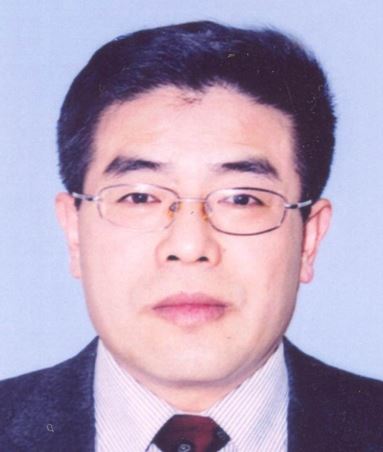
Yanli Gao / 高延利
Director, China Land Surveying and Planning Institute
Dr. Yanli Gao is the director of the China Land Surveying and Planning Institute, vice chairman and the Secretary-General of the China Land Science Society, and the director of the sub-technical committee of the National Land and Resources Standardization Technical Committee on Land Resources Planning, Investigation and Evaluation. He served as the Deputy Director of the Office of the Leading Group of the Second National Land Survey of the State Council and organized the second national land survey. Since December 1986, he has successively worked in the former State Land Administration and the Ministry of Land and Resources, and has served as Deputy Director and Director of Cadastral Management Department of the former Ministry of Land and Resources. He is Long-term engaged in land technical methods system of resources survey and monitoring, standard formulation, major project implementation, as well as business and technical management work. He has made an important contribution to the promotion of land resources survey and monitoring technology progress and discipline development. He was elected to receive special allowances from the Government of the State Council.
高延利,研究员,现任中国国土勘测规划院院长,中国土地学会副理事长、秘书长,全国国土资源标准化技术委员会土地资源规划、调查、评价分技术委员会主任,曾任国务院第二次全国土地调查领导小组办公室常务副主任,组织开展第二次全国土地调查。1986年12月以来,先后就职于原国家土地管理局、国土资源部,曾担任原国土资源部地籍管理司副司长、司长。长期从事土地资源调查监测技术方法体系研究、标准规范制定、重大工程实施,以及业务技术管理工作,为推动土地资源调查监测技术进步和学科发展做出了重要贡献,被评选为享受国务院政府特殊津贴人员。
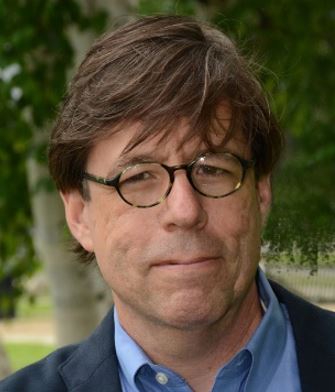
Benjamin Gianni (Vice-President)
Professor, and Coordinator, Urbanism Program, Azrieli School of Architecture & Urbanism, Carleton University
Thematic Areas 6:
Housing access, affordability and finance: comparative strategies, best practices and lessons learned from Canada, Africa and China
Dr. Benjamin Gianni is an Associate Professor in the Azrieli School of Architecture and Urbanism at Carleton University where he heads the Urbanism program. Mr. Gianni received a B.A. from the University of Pennsylvania and an M.Arch. from Yale University. He served as Director of the School of Architecture at Carleton University from 1992-2000 and Director of the School of Information Technology from 2003-2006. Professor Gianni’s research interests focus on the areas of housing and urban development. Of particular interest are 1) public housing constructed in the decades following WWII in Europe and North America, and its redevelopment from the 1990s onward, 2) urbanization, suburbanization and the study of large-scale housing ensembles in contemporary China, questioning the legacy of modernism and its transposition to different cultural and temporal contexts, and 3) the redevelopment of informal settlements in China, India and Africa, using design as a form of research to explore adaptable, culturally resonant and market-friendly approaches to redevelopment.
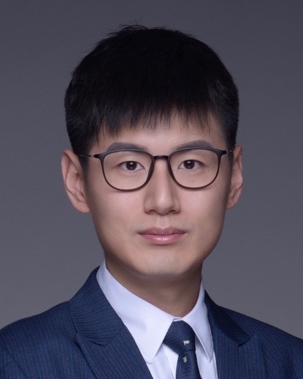
Haotian Guan
PhD Student, Department of Geography, University of Ottawa
Speech:
TBD
Haotian Guan is a Ph.D. student in Geography at the University of Ottawa. His research interests focus on gentrification and financialization of rental housing in China. His Ph.D. research examines the gentrification effects of newly emerged long-term rental format driven by online rental platform in major Chinese cities. In his recent journal article entitled “Gentrification in Global South: New Insights from China”, he reviews the current state of English-Language gentrification studies about China, and examines differential factors between Chinese and Anglo-Saxon gentrification studies.
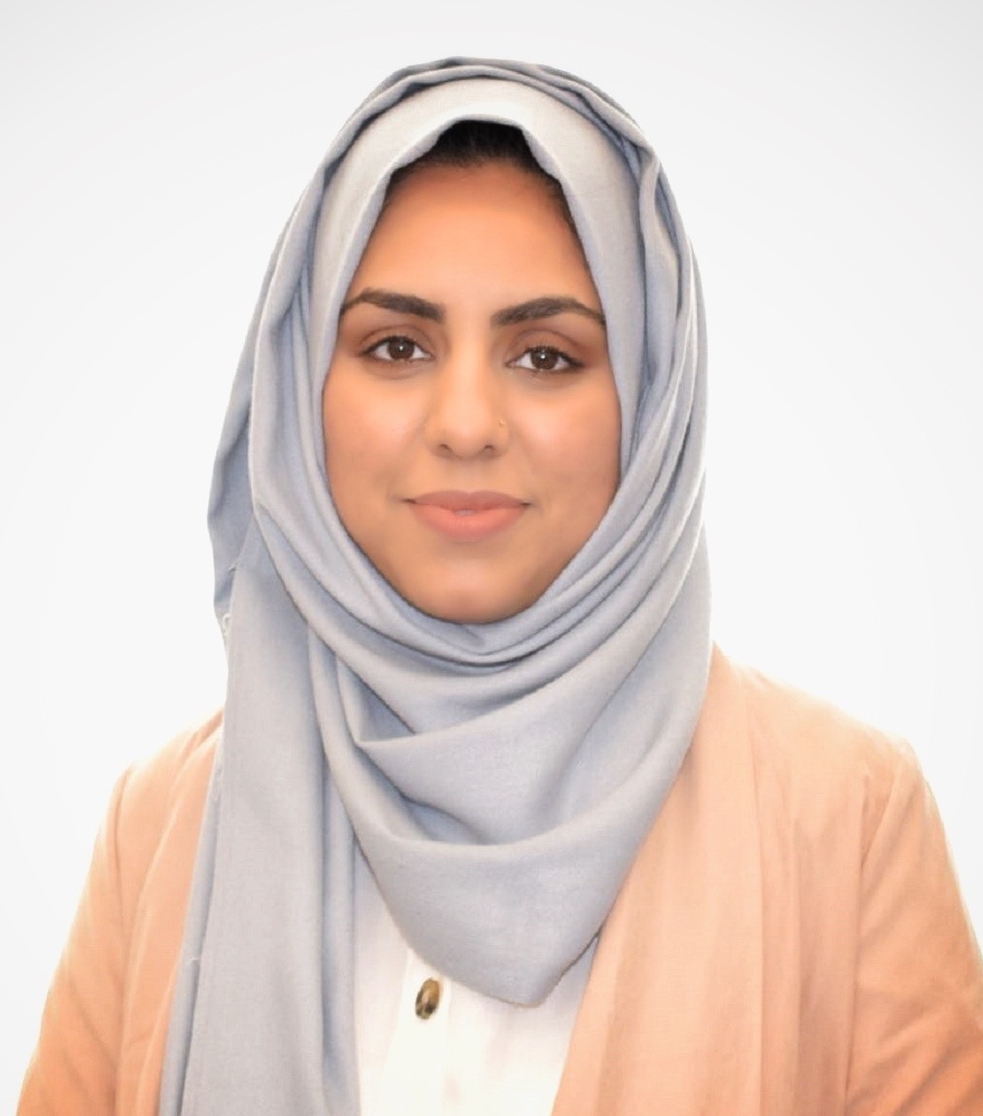
Areesha Gul
PhD Student, Department of Geography, Environment & Geometics, University of Ottawa
Thematic Areas 2:
Preparedness and management of COVID 19 and climate change in cities
Areesha Gul is currently a PhD student at Department of Geography, Environment & Geometics, University of Ottawa. She holds a Masters in City & Regional Planning and is a Fullbright Alumni from UGRAD-2014. Ms. Gul possesses interest as well as experience of research in the field of housing, urban development, urban design and built environment as an impact of transportation systems. Following a qualitative and quantitative methodological approach, her masters research explicitly explores the determinants of the impacts of bus rapid transit on adjacent property values in Lahore, Pakistan. Her publication in Habitat international addresses one of the most crucial issue of housing market in developing countries i-e land speculation. Her other international publications also pose the recommendations for affordable and sustainable urban housing. Her diverse experience encompasses participation as well as organization of various international conferences. Prior to her commencing the doctoral studies, she served as a Lecturer at University of Management & Technology, Pakistan and supervised numerous field projects along with conducting research and providing consultative services to government department of housing, urban planning & public health engineering. She was also awarded by the United States Department of State as cultural ambassador of Pakistan at USA.
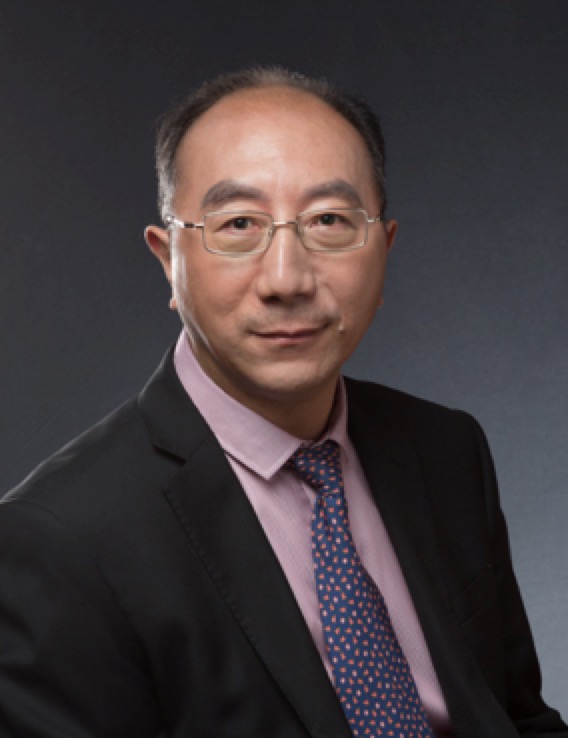
Dingping Guo
Professor, School of International Relations and Public Affairs, Fudan University
Director, Dr. Seaker Chan Center for Comparative Political Studies, Fudan University
Thematic Areas 4:
Forecasting and forward-looking urban risks management: managing increasing density, diversity, and mobility
Dr. Dingping Guo is Professor of political science, Director of the Dr. Seaker Chan Center for Comparative Political Studies in School of International Relations and Public Affairs of Fudan University. He was Chinese Director of the Confucius Institute at the University of Nottingham (2012-2014); Vice-Dean of the Institute of International Studies at Fudan University (2009-2012); Director of the Center for Japanese Studies (2008-2012) at Fudan University. He got his first Ph. D from Fudan University in 1999 and second one from Tokyo University in 2002. His research interests focus on comparative politics, urban governance and international relations in East Asia. His publications include books such as Political Culture and Democratic Transition in East Asia (Co-author, Fudan University Press, 2015), Culture and Democracy (editor, Fudan Political Science Series No. 8, Shanghai People's Press, 2010), Studies of Political and Diplomatic Transformation in Japan (editor, Fudan University Press, 2010), The Community-Building in East Asia: Theory and Practice. (editor, Fudan University Press, 2008), Expos and Development of Global City (editor, Fudan University Press, 2007), Governance and Democracy in Shanghai (Chongqing Press,2005), A Study of the Democratic Transition in Korea (Beijing: Social Science Press of China, 2000), Political Parties and Government (Hangzhou: Zhejiang People's Press, 1998), Pluralist Politics (Hong Kong: Joint Publishing House,1994), and many articles and essays in Chinese, English and Japanese.
郭定平,复旦大学国际关系与公共事务学院政治学教授,陈树渠比较政治发展研究中心主任。曾任英国诺丁汉大学孔子学院中方院长(2012-2014年);复旦大学国际问题研究院副院长(2009-2012年);复旦大学日本研究中心主任(2008-2012年)。1999年在复旦大学获得第一个博士学位,2002年在东京大学获得第二个博士学位。研究方向是比较政治学、城市治理、现代东亚政治与国际关系。出版著作包括《东亚政治文化与民主转型》(合著,复旦大学出版社,2015年)、《文化与民主》(主编,复旦政治学评论第8辑,上海人民出版社,2010年)、《日本政治与外交转型研究》(主编,复旦大学出版社,2010年)、《东亚共同体建设的理论与实践》(主编,复旦大学出版社,2008年)、《世博会与国际大都市的发展》(主编,复旦大学出版社,2007年)、《上海治理与民主》(重庆出版社,2005年)、《韩国政治转型研究》(北京:中国社会科学出版社,2000年)、《政党与政府》(杭州:浙江人民出版社,1998年)、《多元政治》(香港三联书店有限公司,1994);以中文,英文和日文发表论文百余篇。
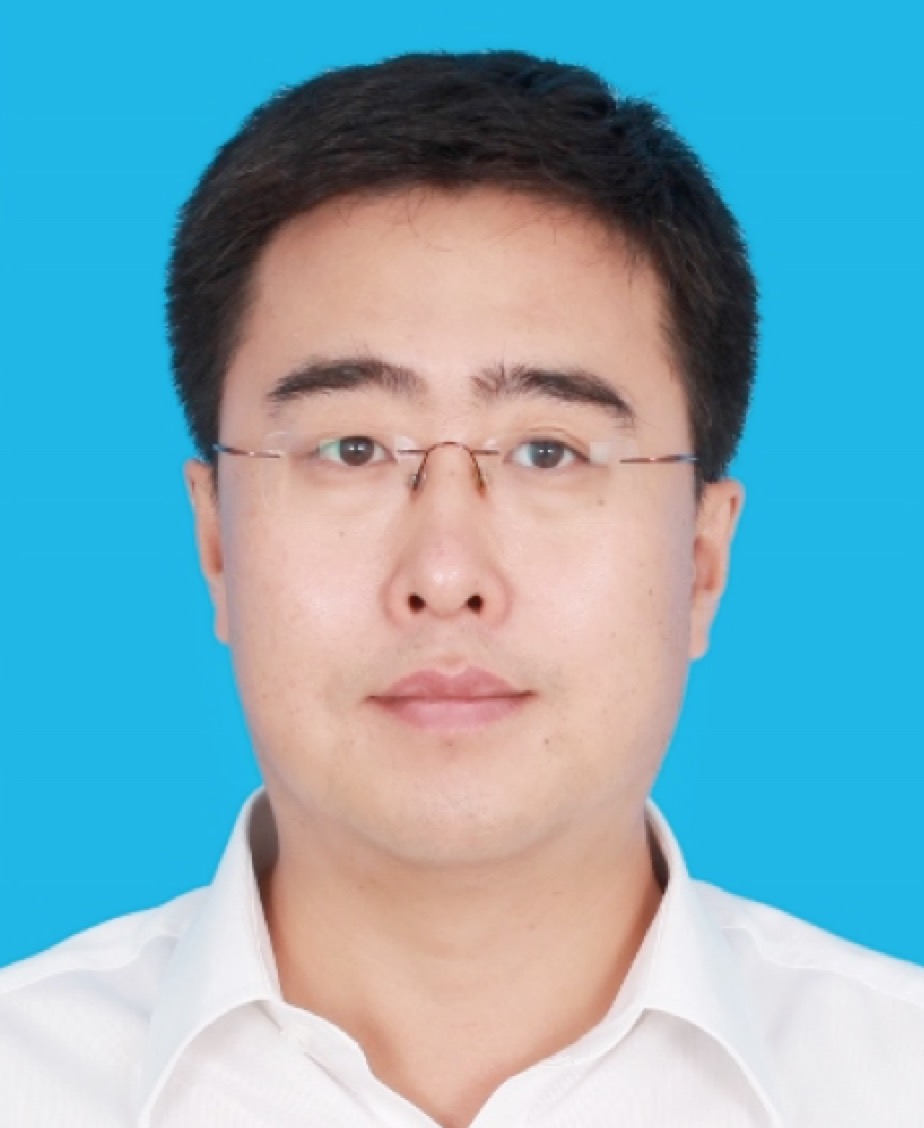
Xudong Guo
Chair, Key Lab of Land Use, China National Surveying and Planning Institute
Speech:
TBD
Dr. Xudong Guo received his Doctor degree of Ecology from Eco-Environmental Research Center, Chinese Academy of Sciences and joined China National Surveying and Planning Institute in 2001. From January 2003 to April 2003, he worked in the International Institute for Applied Systems Analysis as a visiting scholar. From November 2009 to November 2010, he worked in Chengdu Land and Resources Bureau, south-eastern China, as bureau director assistant. Now he is in charge of key lab of land use, CNSPI and the leader of “the Land Resources Use and Ecological Management Team”, the First Batch Technology Innovation Team of the Ministry of Natural and Resources. He has made many achievements in the field of land ecology and land resource monitoring. He acts as Vice-Chairman and Secretary-General of Land Ecology Branch of China Land Society, Vice-Chairman of Land Resources Research Professional Committee of China Natural Resources Society, and Member of Urban Ecology Professional Committee of China Urban Planning Society. Over the years, he has presided over 10 research projects funded by National Natural Science Foundation, Land and Resources Survey and Evaluation Engineering for the 13th Five-Year Plan, State Key Research and Development for the 13th Five-Year Plan, etc. Due to his hard work, he has been awarded National Prize for Progress in Science and Technology, National Land and Resource Prize for Progress in Science and Technology, and Geographic Information Technology Progress.
郭旭东博士,2001年毕业于中国科学院生态环境研究中心,获得博士学位,同年进入中国土地勘测规划院工作。2003年1月到4月,在国际应用系统研究所做土地利用变化和土地资源承载力的访问研究;2009年11月到2010年11月,第十批中组部博士服务团在成都市国土局挂职,任局长助理;现任中国国土勘测规划院土地利用重点实验室主任。郭旭东在土地生态和土地资源综合监测等方面取得了突出成绩,是首批国土资源部科技创新团队“土地资源利用与生态管护团队”负责人。现任中国土地学会土地生态分会副主任兼秘书长、中国自然资源学会土地资源研究委员会副主任,中国城市规划学会城市生态学术委员会委员。主持国家自然科学基金、国家“十三五”重点研发、国土资源调查评价工程等项目多项,获国家科学技术进步二等奖(排名4)、国土资源科技进步一等奖(排名4)、二等奖(排名1,1)、地理信息科技进步一等奖(排名1)等多项。
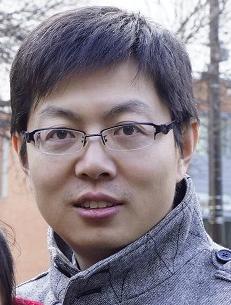
Ruibo Han
Director of Programs at the Center of Geospatial Science, University of Maryland, United States
Speech:
Dr. Ruibo Han received his Ph.D. in Geography from the University of Ottawa in 2012. He has been doing research and teaching at the University of Ottawa, Agriculture and Agri-Food Canada, University of Toronto, and University of Maryland. He is currently working as a Senior lecturer in the Department of Geographical Sciences at the University of Maryland, and also serves as the Director of Programs at the Center of Geospatial Science at the University of Maryland. Dr. Han’s research Interests include Big data analytics, Social media data mining, Mobile GIS and Web GIS; Geo-Simulation; Programming and mapping under Geomatics; Spatial data management and analysis; Land cover and use; Urbanization and urban ecosystem studies. He has polished extensively in fields above, and serves as a reviewer for multiple journals in geospatial science and urban ecosystem studies.
韩瑞波博士于2012年在加拿大渥太华大学获得地理学博士学位。之后在加拿大渥太华大学,加拿大农业和农业食品部,多伦多大学和马里兰大学从事研究和教学工作。他目前在马里兰大学地理科学系担任高级讲师,并在马里兰大学地理空间科学中心担任项目主任。韩瑞波的研究兴趣包括大数据分析;社交媒体数据挖掘;移动和网络地理信息系统; 地理模拟; 空间数据管理和分析;土地覆盖和使用;城市化和城市生态系统研究。他在上述领域主持了多个课题,并担任多个地理空间科学和城市生态系统研究期刊的审稿员。
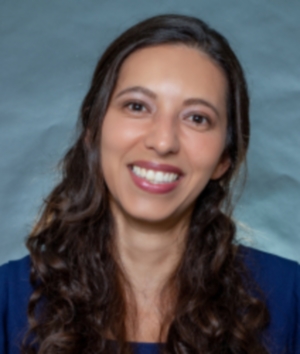
Luisa Fernanda Gomez Jimenez
Research Chair in ICCCASU 2021
Keynote Speech:
Luisa Fernanda Gomez Jimenez is
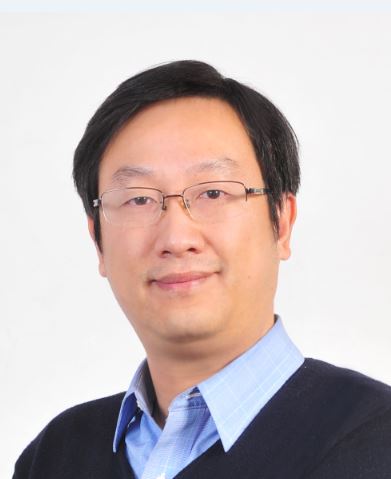
Yangfan Li
Professor, Xiamen University, China
Keynote Speech:
Dr. LI Yangfan is now a professor in the College of the Environment & Ecology, and a joint professor in the Coastal and Ocean Management Institute, Xiamen University, China. He integrates urbanization, environmental change and ecosystem resilience in China’s coastal cities, and hopes to use his understanding in these areas to influence the decision-making of the Chinese government. In the end, he wants to make a positive contribution to the Chinese and global people. Dr. LI has published more than 100 papers (including 28 SCI papers) and three books in his research area and received numerous awards for his outstanding academic performance, the Green Talents Sustainability Prize (2011) by the German Federal Ministry of Education and Research, the World Social Science Fellows for Sustainable Urbanization (2014) by the International Social Science Council (ISSC), and the 5th ESC Youth Science and Technology Award (2018) by the Ecological Society of China, for examples. He was granted several important research projects on urban sustainability and landscape resilience in coastal regions, which were funded by the National Natural Science Foundation of China. Dr. LI serves as members of the Scientific Steering Committee on the International Association for Landscape Ecology-China Chapter (IALE-China), the Society for Urban Ecology-China Chapter (SURE-China). He was a visiting fellow of Cornell University, USA and a guest scientist of Humboldt-Universität zu Berlin, Germany.
李杨帆,教授、博士生导师、博士,厦门大学环境与生态学院院长助理、工程技术中心主任,厦门大学海洋与海岸带发展研究院兼职教授。聚焦我国东部海岸带快速城市化过程的生态环境效应,从耦合系统角度开展了气候变化与快速城市化叠加影响的海岸带城市社会-生态系统多尺度研究,运用生态阈值-恢复力-预警评价及生态建模方法揭示城市生态系统空间演变机理;提出海岸带弹性:土地-水-生物多样性联结及城市生态管治新理念,在气候变化、可持续城市化与生态管理领域推动自然科学与社会科学交叉研究,为政府相关主管部门提供生态环境评价、规划与转型发展的决策支撑。已发表论著超过百篇,其中SCI论文28篇。2011年获德国教育与科研部全球“绿色精英”青年科学家奖,2014年获国际社科联可持续城市化研究学者称号,2018年获得中国生态学学会青年科技奖以及福建省高校新世纪优秀人才计划的支持。曾任美国康奈尔大学和德国柏林洪堡大学访问科学家。
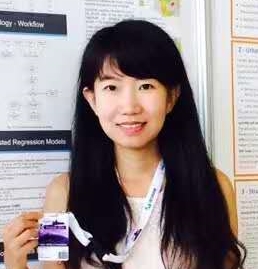
Yuenan Li
Ph.D Candidate, Department of Geography, Environment and Geomatics, University of Ottawa
Thematic Areas 5:
Privacy, surveillance, security, governance and collective wellbeing
Yuenan Li is a Ph.D Candidate in Geography at the University of Ottawa and currently serving as a Teaching Assistant at the University of Ottawa. She received her M.Sc degree in Geography from University of Waterloo in 2016. Her current research interests focus on the areas of Geographic Information System (GIS), Remote Sensing (RS), big data mining, crime pattern analysis and simulation, built environment and urban ecosystem studies. She has 7 publications on GIS/RS journals, conference proceedings, and book (chapter). Yuenan joined ICCCASU organizing committee in 2018 and served as an Assistant in organizing ICCCASU2019. From 2016 to 2019, she worked at Canada Post Corporation Head Office in Ottawa as a Location Analysis Officer. Since 2019, Yuenan has been working as a Senior GIS Developer at Ottawa Police Service, where she started her interest in crime pattern studies.

Zhi Liu
Senior Fellow and Director of China Program
Keynote Speech:
TDB
Zhi Liu, a specialist in infrastructure and its financing, is director of the China program at the Lincoln Institute of Land Policy and of the Peking University–Lincoln Institute Center for Urban Development and Land Policy in Beijing, China. Previously as an infrastructure specialist at the World Bank, he had operational experience mainly in East Asia and South Asia, where he managed investment lending projects and analytical and advisory activities in the infrastructure and urban sectors. Before joining the World Bank, he was a research associate with the Harvard Institute for International Development. He also taught city and regional planning as a faculty member at Nanjing University. He has authored and co-authored a number of academic papers and World Bank reports on topics including metropolitan infrastructure financing, low-carbon city development, sustainable urban transport, motorization, and poverty and transport. He holds a B.S. from Zhongshan University, an M.S. from Nanjing University, and a Ph.D. from Harvard University. In 2010, he served as vice chair of the Global Agenda Council for the Future of Transportation, World Economic Forum. In 2015–16, he served as a member of the Expert Committee for China’s 13th Five-Year National Social and Economic Development Plan.
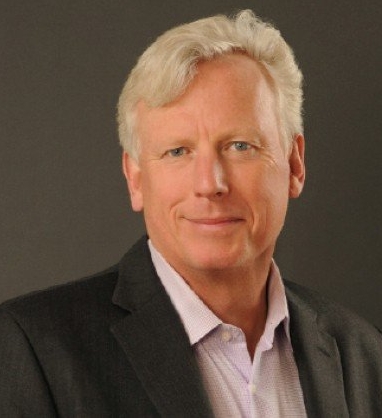
David Miller
Former Mayor of Toronto
Keynote Speech:
Solved: How the World’s Great Cities Are Fixing the Climate Crisis
Like most Torontonians, Mayor David Miller immigrated to Toronto. He and his mother arrived from England in 1967, and moved to Toronto in 1981. As a high school senior, the mayor played hockey and was known to use his size to his advantage in the corners. Mayor Miller received a degree in economics from Harvard University and a law degree from the University of Toronto.
Before running for public office, he was a partner at the Toronto law firm Aird & Berlis, where he specialized in employment and immigration law and shareholder rights. He became a Metro councillor in 1994, and in 1997 he was elected to the new City of Toronto council where he served two terms. In November 2003, Torontonians chose David Miller as their new mayor and in November, 2006, he was re-elected for a second four-year term. His mandate is to make Toronto a city of prosperity, opportunity and Liveability for all residents. He and his wife, lawyer Jill Arthur, are the parents of two children.
Among his many accomplishments as mayor, securing a New Deal for Cities with senior orders of government is one of his proudest. Through the Deal, Mayor Miller has enabled Toronto to garner new powers, money, and respect from provincial and federal governments. Under his leadership, Toronto has become the only city in Canada with a direct agreement with the federal government on transit funding.
In addition to advocating for the city of Toronto, Mayor Miller has also become one of the dominant voices for the national urban agenda. As the City comes into its own as a full-fledged government, it is reinvesting in Toronto's neighbourhoods and communities through initiatives like the Mayor's Community Safety Plan, the Clean and Beautiful City Initiative, rejuvenation of parks and public spaces and through ongoing revitalization of the waterfront. Mayor Miller has also worked to make Toronto a world-leading city on environmental issues and on June 4, 2008 he was appointed chair of the influential C40
Group of World Cities leading the fight against Climate Change.
These positive changes have inspired a new sense of civic pride, responsibility and belonging among Torontonians.
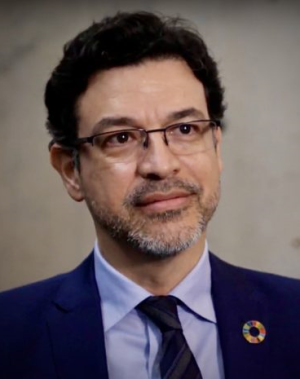
Elkin Velasquez Monsalve
Regional Director, Latin America and the Caribbean, UN-Habitat
Speech:
Mr. Elkin Velasquez Monsalve is the Regional Director of UN-Habitat in Latin America and the Caribbean. He co-leads the Regional Action Plan for the implementation of the New Urban Agenda in LAC. Elkin also has served as Leader of Regional and Metropolitan Planning Unit at Nairobi-HQ and started the flagship initiative on National Urban Policies. He was Chief of the Urban Governance Section; coordinator of the Safer Cities Programme and temporally responsible for the Gender Unit.
Elkin has wide experience in the field, particularly in Latin America, assisting national and local governments in areas like urban governance, territorial planning, urban safety and area-based public policies. He also developed research in these areas and taught at several universities.
Elkin is a national of Colombia. He studied Public Administration at the ENA (French National School of Public Administration); obtained a Ph.D. in Geography, specializing in Territorial Policy and Planning, at the University of Grenoble (France); and did graduate in Engineering at School of Mines, National University of Colombia in Medellin.

Tonton Mundele Beya Wa Beya
Academic Chair of ICCCASU
Trade Commissioner in Climate Finance Business Development and International Financial Institutions Team, Global Affairs Canada
Speech:
Tonton Mundele Beya Wa Beya, Ph.D is the Academic Chair of the International Conference on Canadian, Chinese and African Sustainable Urbanization since 2017. He works for Global Affairs Canada as a Trade Commissioner with the Climate Finance Business Development and International Financial Institutions team. Prior to joining Global Affairs Canada, Tonton was a Banker, he worked for Royal Bank of Canada, TD Canada Trust, Scotiabank. He lived in China for 7 years where he held a Ph.D. degree in International Economics. He speaks English, French, Mandarin, Lingala and Tshiluba.
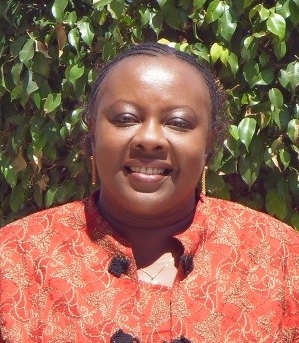
Angela Mwai
Leader of the Gender Equality and Human Rights Unit, UN-Habitat
Speech:
Angela Mwai is the leader of the Gender Equality and Human Rights Unit at UN-Habitat global headquarters in Nairobi. She is UN-Habitat’s gender focal point and her responsibilities include gender mainstreaming in all policies, programmes and projects in UN-Habitat, raising awareness and capacity building on gender and human rights issues, for both internal colleagues and external partners, gender and human rights tool development, engaging colleagues and partners . She is responsible for ensuring gender and human rights responsive initiatives and interventions are considered in all areas including land rights, economic empowerment, governance, spatial planning and urban basic service provision among others.
Angela is also involved with other UN Agencies and partners on advocacy events on gender and women’s issues in international forums around the world. In addition, she is also responsible for global reporting on all cross-cutting issues which are gender, youth, human rights and climate change.
Angela has been working at UN-Habitat from 2007 where she started as a Project Finance Adviser with the Slum Upgrading Facility before taking over the Gender Equality and Human Rights portfolio in 2012. Prior to that, she was a seasoned banker, with 21 years’ experience in financial management at various international financial institutions.
Angela holds a Bachelor’s degree in Economics from York University in Canada and a Master’s degree in Organizational Leadership from Azusa Pacific University, USA.
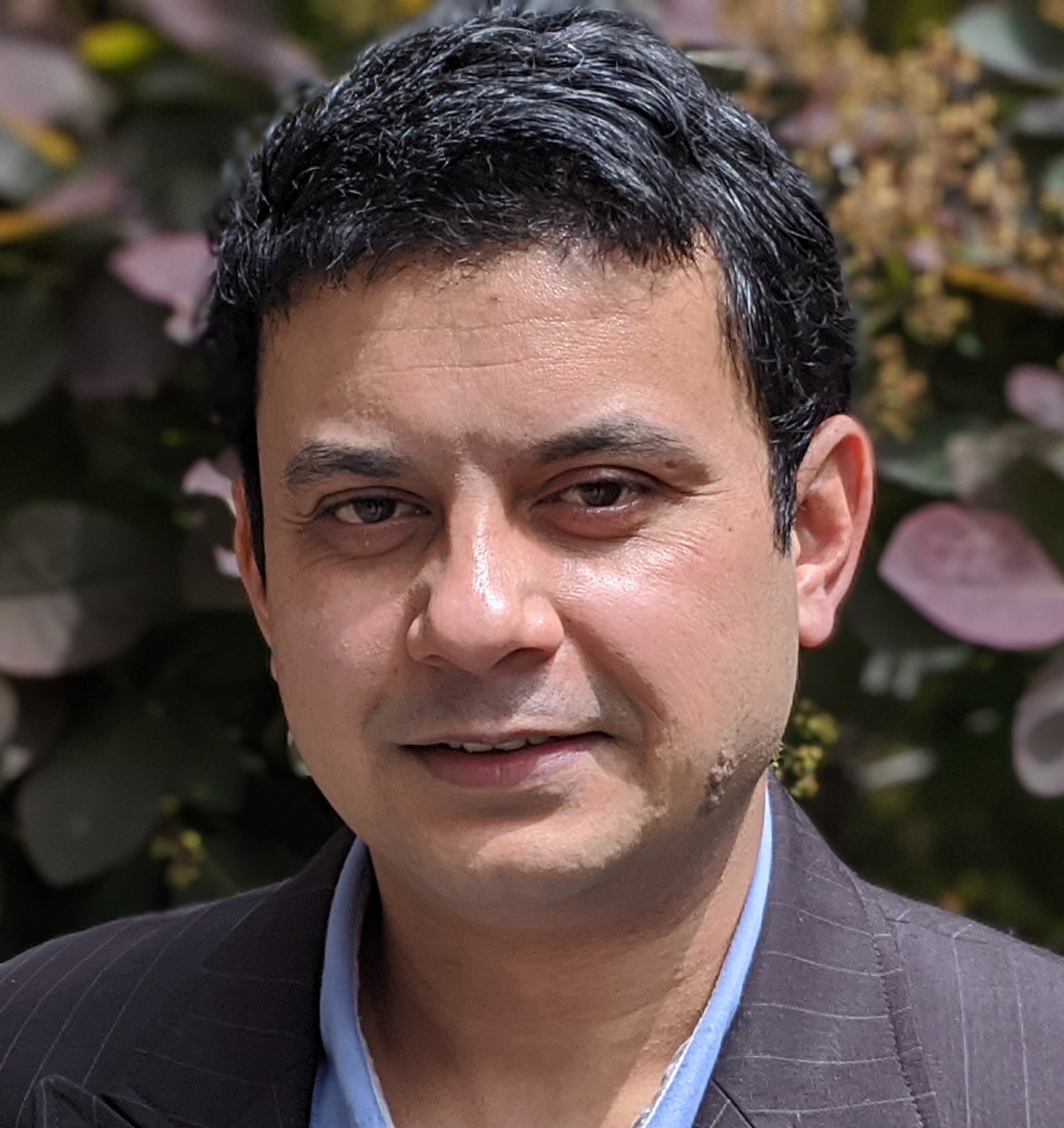
Kh Md Nahiduzzaman
Ph.D, The University of British Columbia (UBC) Okanagan
Thematic Areas 2. / Panel A:
Built-environment in the post pandemic era – revisiting the planning doctrines
Prior to joining the University of British Columbia (UBC) Okanagan, Canada, Dr. Kh Md Nahiduzzaman was an Assistant Professor at the Dept. of City and Regional Planning in King Fahd University of Petroleum and Minerals (KFUPM), Saudi Arabia. He also held faculty positions at the Royal Institute of Technology (KTH), Sweden and Khulna University, Bangladesh. Dr. Nahid has been a research fellow at NIAS (Nordic Institute of Asian Studies) in Copenhagen, Denmark and Watson Institute for International and Public Affairs, Brown University, USA.
Dr. Nahid’s core research interests fall at the intersection of urban transformation, smart cities, and environment. Besides teaching, he is currently heavily engaged on collaborative research projects with the governments and industrial partners in the province of British Columbia (BC) and across Canada. A number of reputed research grants are credited to his account. The notable funders are DFID (UK), British Council (UK), Brown University (USA), Gulf Cooperation Council (GCC), KACST/NSTIP (Saudi Arabia), KACARE (Saudi Arabia) and industrial partners in BC, including Okanagan Basin Water Board (OBWB), BC Real Estate Association (BCREA), Real Estate Foundation BC (REFBC) and Mitacs.
Currently, Dr. Nahid seats in the editorial board of the Journal of Urban Planning and Development (ASCE) and is an Associate Editor of the Journal of Urban Management (Elsevier) and Sustainable Infrastructure in Sustainable Cities (Frontiers).
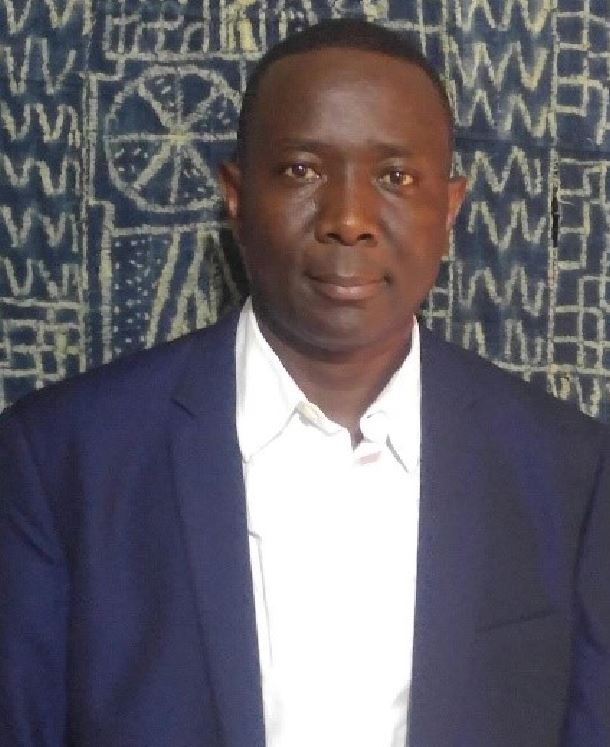
Claude A. Meutchehe Ngomsi
Senior Programme Management Officer, UN-Habitat
Thematic Areas 5:
Privacy, surveillance, security, governance and collective wellbeing
Dr. Claude A. Meutchehe Ngomsi joined UN-Habitat in February 2003 as Urban Planning and Security Assistant Coordinator in Douala, Cameroon. Since March 2016, he is assuming the function of Senior Programme Management Officer in charge of Francophone countries in Africa. Prior to that, he served as lead Technical Adviser in Rwanda for the formulation of the National Urbanization Policy from November 2013 to October 2015. He led the Safer Cities Programme in Francophone Africa and managed the Police Platform for Urban Development aiming at fostering security and urban development nexus, from March 2007 to October 2013. Before joining UN-Habitat was part time lecturer at the University of Yaoundé I. He holds a bachelor’s in Physical Geography, a Master of Arts in Urban Geography, and a PhD in Geography with a specialization in situational crime prevention. A Cameroonian national, Meutchehe Ngomsi read urbanization and crime prevention seminars at the University of Durham, UK. He is author /co-author of scientific papers, policy briefs and strategy documents. He is a member of the International Crime Prevention Through Environmental Design Association, Canada.
Claude A. Meutchehe Ngomsi a rejoint ONU-Habitat en février 2003 en tant qu’expert en planification urbaine et sécurité basé à Douala, au Cameroun. Depuis mars 2016, il assume les fonctions de conseiller principal en charge des pays francophones d'Afrique en novembre 2015. De novembre 2013 à octobre 2015, comme conseiller technique, il a conduit le processus de formulation de la politique nationale d'urbanisation du Rwanda. De mars 2007 à octobre 2013, il a dirigé le programme Villes plus sûres en Afrique francophone et la plate-forme policière pour le développement urbain, visant à renforcer le nexus sécurité et développement urbain. Avant de rejoindre ONU-Habitat, il était enseignant vacataire à l'Université de Yaoundé I. Il est titulaire d'une Licence en géographie physique, d'une maîtrise ès arts en géographie urbaine et d'un doctorat en géographie, spécialisée en prévention situationnelle de la criminalité. Meutchehe Ngomsi, de nationalité camerounaise, délivre des séminaires sur l'urbanisation et la prévention de la criminalité à l'Université de Durham, au Royaume-Uni. Il est auteur / co-auteur d'articles scientifiques, de notes d'orientation et de documents de stratégie et politique de développement. Il est membre de l'Association mondiale pour la Prévention du Crime par l’Aménagement du Milieu, basée à Canada.
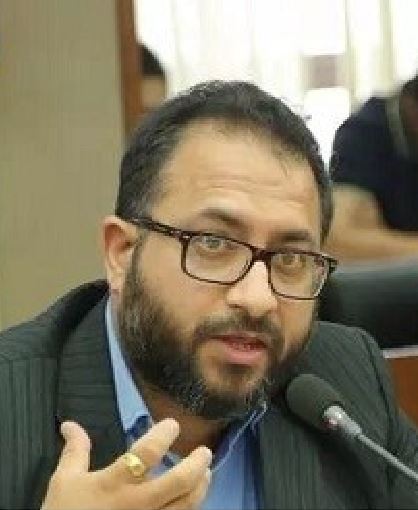
Aurobindo Ogra
Professional Planner at South African Council for Planners (SACPLAN)
Thematic Areas 7:
Industrial Parks, Agro-processing Zones and Urban Transformation
Aurobindo Ogra joined University of Johannesburg in 2009 and lectures at Department of Town and Regional Planning, Faculty of Engineering and the Built Environment. He is a Professional Planner (SACPLAN) and has 16 years of multidisciplinary international professional experience in urban sector from India and South Africa. He holds Bachelor of Construction Technology (2000), MTech in Urban & Regional Planning (2002) and Masters in Business Economics (2009), and is currently finishing his doctoral research in Engineering Management at University of Johannesburg. He is also trained in specialized programmes in urban sector from leading institutions in areas of: Urban & City Management (World Bank Institute), Strategic Approach to Urban Challenges (Central European University), Smart Cities – Management of Smart Urban Infrastructures (IGLUS, EPFL, Switzerland) and among other specializations. His key expertise and interest areas span across multidisciplinary domains of urban sector: Urban Infrastructure Planning and Development, Urban and Regional Planning, Urban Development and Management, Local Government, Metropolitan and City Regions, E-Governance, Geographic Information Systems, Spatial Analytics, and Smart Cities.
奥罗宾多•奥格拉,约翰内斯堡大学城镇与区域规划系、工程与建筑环境系讲师,专业规划师,曾在印度和南非的城市规划部门工作,具有多元、国际化工作经验。先后于2000年获得建筑技术学士学位、在2002年获得城市与区域规划硕士学位、在2009年获得商业经济学硕士学位,目前同时在约翰内斯堡大学攻读工程管理博士学位。奥罗宾多•奥格拉主要研究领域包括城市基础设施规划与发展、城市与区域规划、城市发展与管理、地方政府、大都市区发展与规划、电子政务、地理信息系统、空间分析和智慧城市等。曾先后在多个国际机构接受过专业课程培训,包括:城市与城市管理(世界银行研究院)、面向城市挑战的战略方针(中欧大学)、智慧城市-智能城市基础设施管理(IGLUS,EPFL,瑞士)等。

Xiao Qiong
Professor and the Deputy Dean of School of International Education at the Southwest Minzu University of China
Speech:
TBD
Dr. Xiao Qiong is a Professor and the Deputy Dean of School of International Education at the Southwest Minzu University of China. She was also a visiting scholar of the University of Ottawa, Canada, 2012 (CCSEP Program). She has been engaging in teaching and researching on Ethnic Tourism Economy and Ethnic Culture since 1996. Dr. Qiong organized the “China-Canada Forum on Ethnic/Aboriginal Economic and Social Development” in 2016 and “China-Canada Forum on Aboriginal/Minority Identity: From Tradition to Modernity” in 2006. Presiding and participating in over 20 academic research programs in recent ten years, her recent research is focused on the sustainable development of ethnic tourism villages, the Urban ethnic mobile population, and Canadian aboriginal economy and culture.
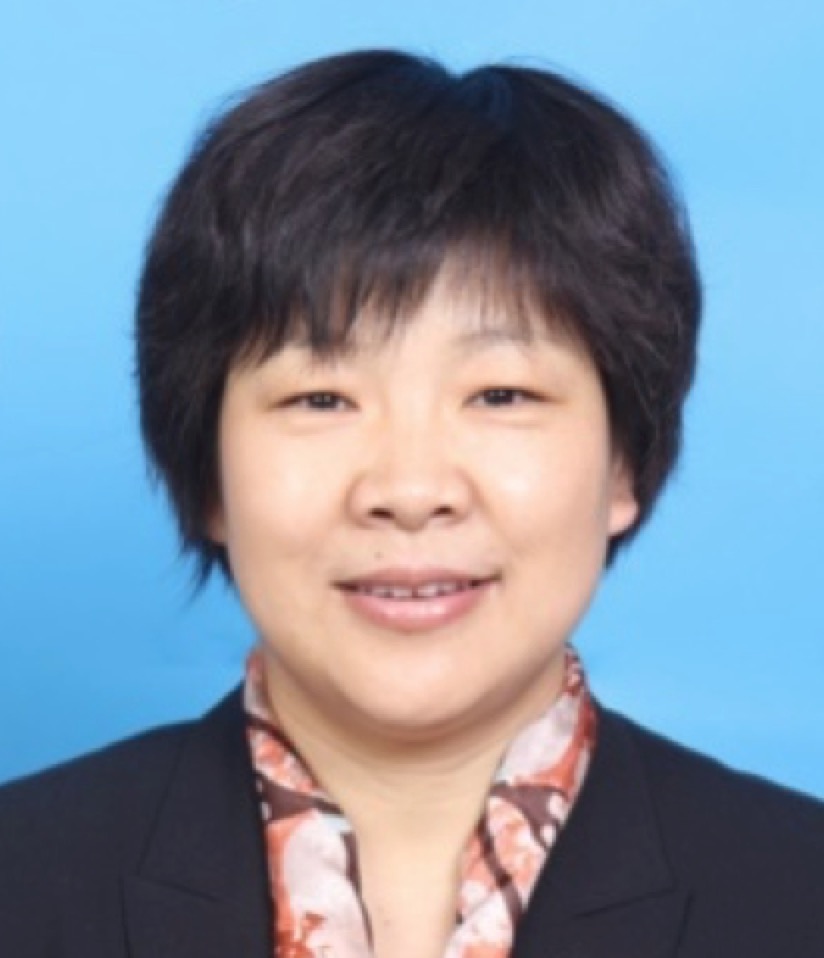
Aijun Qiu / 邱爱军
Deputy Director, China Center for Urban Development
Dr. Aijun Qiu, Deputy Director General and Research Fellow, China Center for Urban Development, National Development and Reform Commission; Consultant to the World Bank (WB) and the Asian Development Bank (ADB); Executive Director, China Society of Urban Economy. Previously in the State Commission for Structural Reform, she took charge of projects of small town and community development in cooperation with the United Nations Development Programme and the United Nations Children's Fund. Her research fields cover small town development, urbanization development, urbanization policy and urban planning. She led international projects with the WB, the ADB and other international institutions, pre-draft projects of Beijing Twelfth Five Year Plan and development planning for urban governments. She was involved with initial policy research on small towns, migrant workers and urbanization by the Central Government. She accomplished a series of research reports, such as Development Strategy for Chinese Small Towns (2007), Comparative Research on Civil Engagement in Urban Planning (2010), Planning for Healthy Small Town’s Growth (2012), and Policy Research on Options of Chinese Urbanization Strategies (2013), all granted with provincial-level research awards.
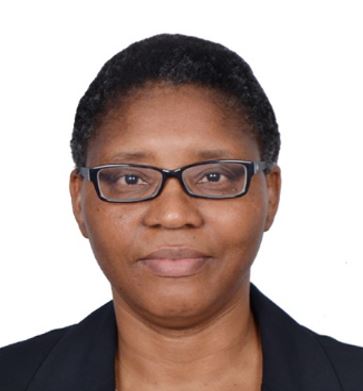
Inês Macamo Raimundo
Professor, Eduardo Mondlane University, Mozambique
Dr. Inês Macamo Raimundo holds a PhD in Forced Migration and Master in Human Geography (focus on internal migration) by the University of the Witwatersrand, Johannesburg, South Africa and Licenciatura (Bhonors) in Geography by Eduardo Mondlane University (Mozambique). Raimundo has taught at Eduardo Mondlane University for 25 years where she trained several undergraduate and postgraduate students in Human Geography, Geography of Population, Geography of Migration, Environment and Population and Development and urban issues. She is Associate Professor and Senior Researcher of Eduardo Mondlane University. Prof. Raimundo is Representative for Southern Africa of Commonwealth Geographical Bureau (CGB) and member of International Council for Sciences (ICSU)-Regional Committee for Africa (RCA). She has lead research in migration as member of SAMP (Southern African Migration Program), and AFSUN (African Food Security Urban Network). Her major research has focused on urban studies and migration linked with poverty, HIV and gender, food security and informal economy. At University she has chaired the position of Deputy-Dean of Post-graduate studies (2012-2017), Director of the Center for Policy Analysis (2010-2012), Head of Department of Population Studies of the Center for Policy Analysis (2008-2010) and Head of Department of Geography (2002-2003). Currently, she leads the Department of Academic Assurance of the Faculty of Arts and Social Sciences.
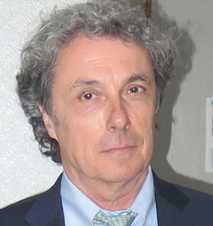
Michel Max Raynaud
Professeur à l’Université de Montréal
Vice-président de l’APERAU Bureau des Amériques
Speech:
TBD
Michel Max Raynaud est professeur à l’Université de Montréal en montage et gestion de projets urbains et professeur en design urbain. Il est Vice-président de l’APERAU Bureau des Amériques. Il a fondé avec le Dr Alioune Badiane (ONU Habitat) et dirige le Programme RESAUD (Réseau d'Échanges Stratégiques pour une Afrique Urbaine Durable), organisme non gouvernemental accrédité par les Nations Unies, qui se donne pour mission de transformer le savoir académique en action pour les villes d’Afrique. Le programme RESAUD est Habitat UNI Focal Point, membre de General Assembly of Partners (Research and Academic Partner Constituent Group).
Il a été directeur l’Observatoire Ivanhoé Cambridge du développement urbain et immobilier (2013 – 2018) qui a comme mission de promouvoir la recherche sur les grands projets urbains.
Il est architecte diplômé par le gouvernement D.P.L.G. (France) et urbaniste diplômé de l’Institut d’Urbanisme de l’Académie de Paris D.I.U.A.P. (France). Il détient un doctorat (Ph.D.) en aménagement de l’Université de Montréal (Canada). Il a une longue pratique en France et à l’international comme architecte, urbaniste et expert judiciaire. Auteur de nombreux articles et ouvrages sur l’architecture, le design urbain et l’urbanisme, il a publié récemment Profession : designer urbain (2018) aux Presses de l’Université de Montréal et, en collaboration, Nouveau traité de sécurité : sécurité intérieur et sécurité urbaine (2019) aux Éditions Urtubise.
Michel Max Raynaud, APERAU(Association pour la Promotion de l’Enseignement et de la Recherche en Aménagement et Urbanisme, 城市管理学研究与教育推广协会)美洲办公区的副会长, 蒙特利尔大学城市项目安装管理及城市设计学教授。 Raynaud博士与联合国人居署(ONU Habitat)的Alioue Badine博士一起创立并领导着经由联合国认证的非政府机构:RESAUD项目 (Réseau d’Échanges Stratégiques pour une Afrique Urbaine Durable, 即非洲可持续城市发展战略交流网络),同时还致力于在非洲城市把学术知识转化为实践行动。
RESAUD项目是联合人居署的联络点,同时也是合作伙伴大会(Research and Academic Partner Constituent Group)的成员之一。2013-2018年间,Raynaud教授曾担任蒙特利尔大学亿万豪剑桥城市发展与房地产观测台的负责人,该机构旨在推广对重大城市项目的研究。他还拥有法国DPLG颁发的建筑师学位,以及巴黎城市规划研究所颁发的城市规划师资质,并在蒙特利尔大学获得了城市治理专业的博士学位。他长期在法国和国际上以建筑师,城市规划师及相关法律专家的身份,发表了多篇与建筑学、城市设计及城市规划相关的专栏文章。他于近期(2018年)在蒙特利尔大学出版社的帮助下出版了职业:城市设计师 (Profession: designer urbain)一书,并合作撰写了新安全条约:内部安全与城市安全 (Nouveau traité de sécurité: sécurité intérieur et sécurité urbaine)。
Michel Max Raynaud is a professor at the University of Montreal in editing and management or urban projects and professor in urban design. He is Vice-president of the APERAU Bureau of the Americas. He has founded with Dr.Alioune Badiane (UN Habitat) and directs the RESAUD Program (Strategic Exchange Network for Sustainable Urban Africa), a non-governmental organization accredited by the United Nations, whose mission is to transform academic knowledge into sustainable actions for cities in Africa. The RESAUD program is a UN Habitat Focal Point, and also a member of the General Assembly of Partners (Research and Academic Partner Constituent Group). He has been director of the Ivanhoé Cambridge Observatory for Urban and Real Estate Development (2013-2018), whose mission is to promote research on major urban projects. He is an architect graduated by the D.P.L.G (France) and urban planner graduated from the Urban Planning Institute of the Paris Academy D.I.U.A.P (France). He holds a Ph.D. in Environmental Planning from the University of Montreal (Canada). He is an experienced architect, urban planner and juristic expert in France and in international level. Author of numerous articles and books on architecture, urban design and urban planning. He recently published Profession: Urban Designer (2018) at the Presses de l’Université de Montréal and, in collaboration, New Treaty of Security: Internal Security and urban safety (2019) at Urtubise Publishing.
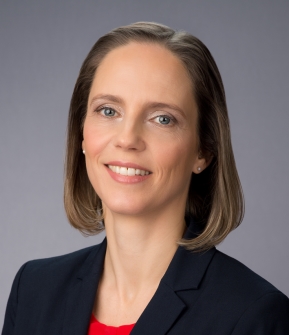
Patricia Roset-Zuppa
Vice-President, Policy at the Canada Mortgage and Housing Corporation (CMHC)
Speech:
Dialogue on Affordable Housing
Patricia Roset-Zuppa is Vice-President, Policy at the Canada Mortgage and Housing Corporation (CMHC). She joined CMHC in 2009 and has held various positions in strategic policy coordination, housing finance policy and federal/provincial/territorial relations. Patricia played a lead role in the development of Canada’s first ever National Housing Strategy that is aimed to build inclusive communities with housing that meets the needs of Canadians and that they can afford. Prior to joining CMHC, Patricia worked in residential real estate, affordable housing policy and applied urban research in Canada and the United States. She holds a Ph.D. in Urban and Regional Planning from the University of Florida, an MBA from the Schulich School of Business at York University, and Masters in Geography from Utrecht University in the Netherlands where she was born and raised. She is an immigrant to Canada and proud Canadian and Dutch dual citizen. She has a passion for urban design and a love for exploring cities and cultures around the world. She currently lives in Ottawa with her husband and two children.

Anaclaudia Marinheiro Centeno Rossbach
Regional Manager for the Latin America and Caribbean at Cities Alliance, based in Mexico City
Speech:
TBD
Anacláudia Rossbach from São Paulo, Brazil holds a master’s degree in political economics and has been working for 20 years in the housing and urban fields, as practitioner and researcher for international organizations, local and national governments, universities, and non-profit organizations. She worked most part of her professional life in Brazil, but also participated in a diverse and large number of international endeavours, projects, knowledge exchange activities, publications, reviews, conferences. During her professional life, she had the opportunity to provide support and advice for key stakeholders from the urban sector from Brazil and a broad range of countries, such as the Philippines, China, India, Sri Lanka, Bangladesh, South Africa, Mozambique, Angola, Egypt, Namibia, Bolivia, Paraguay, El Salvador, Nicaragua, Chile and Peru. During the Habitat III process, she was acted as an expert for the Policy Unit on National Urban Policies. Currently she is Regional Manager for the Latin America and Caribbean at Cities Alliance, based in Mexico City.
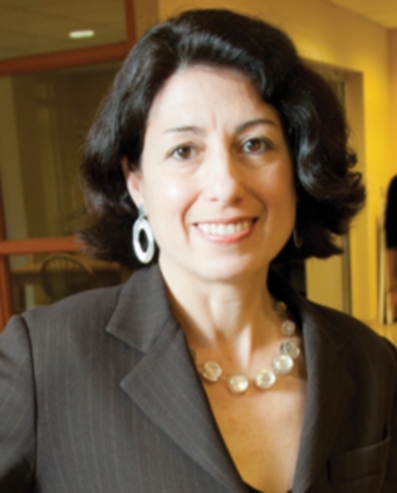
Mimi Sheller
Professor of Sociology, Head of the Sociology Department, and founding Director of the Center for Mobilities Research and Policy at Drexel University in Philadelphia, USA
Keynote Speech:
Building a Thriving Caribbean Future: Resetting policy with international partners
Mimi Sheller, Ph.D., is Professor of Sociology, Head of the Sociology Department, and founding Director of the Center for Mobilities Research and Policy at Drexel University in Philadelphia. She is founding co-editor of the journal Mobilities and past President of the International Association for the History of Transport, Traffic and Mobility. She helped to establish the “new mobilities paradigm” and is considered to be a key theorist in critical mobilities research and in Caribbean studies. She serves on many international Advisory Boards, including for the Society for Caribbean Research, the Center for Advanced Research in Global Communication at University of Pennsylvania, the Bauman Institute at the University of Leeds, the Asia Mobilities Research Network at Konkuk University, South Korea, and the Global Partnership for Informal Transportation.
Sheller has published more than 125 articles and book chapters, and is the author or co-editor of fifteen books, including Advanced Introduction to Mobilities (Edward Elgar, 2021); Island Futures: Caribbean Survival in the Anthropocene (Duke University Press, 2020); Mobility Justice: The Politics of Movement in an Age of Extremes (Verso, 2018); Aluminum Dreams: The Making of Light Modernity (MIT Press, 2014); Citizenship from Below: Erotic Agency and Caribbean Freedom (Duke University Press, 2012); Consuming the Caribbean: From Arawaks to Zombies (Routledge, 2003); and Democracy After Slavery: Black Publics and Peasant Radicalism in Haiti and Jamaica (Macmillan Caribbean, 2000).
She was awarded the Doctor Honoris Causa from Roskilde University, Denmark (2015). She has received research funding from the National Science Foundation, the British Academy, the Arts and Humanities Research Council, the Macarthur Foundation, the Mobile Lives Forum, and the Graham Foundation in Advanced Studies in the Fine Arts. She has held Visiting Fellowships at the University of Miami (2019); the Annenberg School of Communication at University of Pennsylvania (2016); the Penn Humanities Forum (2010); the Center for Mobility and Urban Studies at Aalborg University, Denmark (2009); Media@McGill, Canada (2009); the Davis Center for Historical Studies at Princeton University (2008); and Swarthmore College (2006-2009).
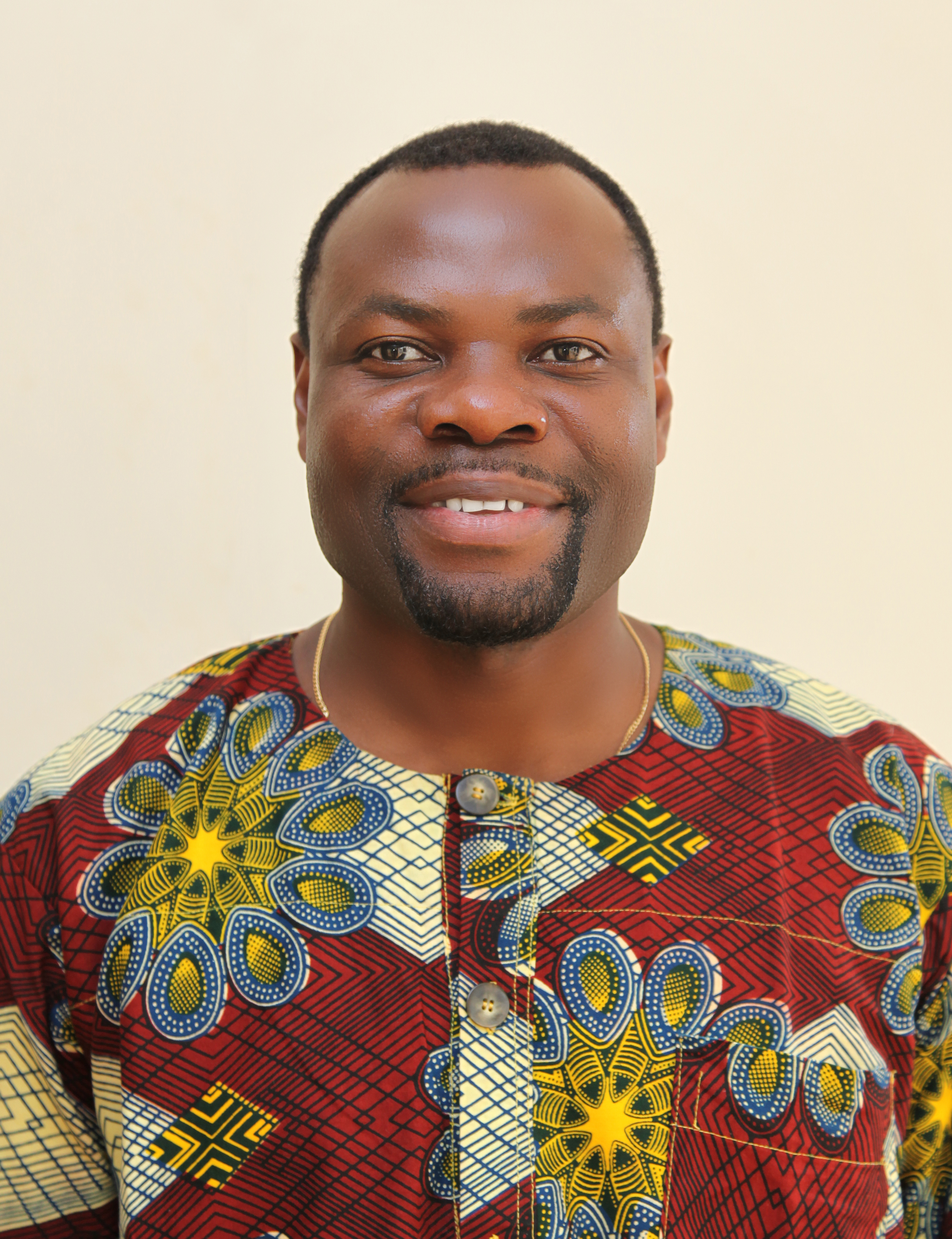
Remy Sietchiping
Leader of the Regional and Metropolitan Planning Unit at UN-Habitat
Speech:
TBD
Remy Sietchiping is the leads the Regional and Metropolitan Planning Unit at UN-Habitat. He oversees the development of strategic programmes of the UN-Habitat including National Urban Policy, urban-rural linkages, smart cities, metropolitan development and the International Guidelines on Urban and Territorial Planning and its application to health sector. He manages an active global portfolio in over 40 countries. Prior to join UN-Habitat, Dr. Sietchiping was Project Leader of the Global Land Tool Network where he coordinated the work on tool development processes particularly on access to land and tenure security, land management and planning, land information, land policy and legislation and land-based financing. He has over 25 years working experience in the UN systems, academia, private sector, public sector and NGOs in Australia, Cameroon, Ethiopia, Jamaica and worldwide. Dr. Sietchiping has over 40 publications including books, peer-reviewed articles, papers in proceedings and reports. He speaks French and English. He holds a Ph.D in Geography from the University of Melbourne, Australia.
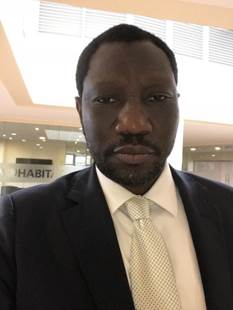
Oumar Sylla
Director, Regional Office for Africa, UN-Habitat
Keynote Speech:
Construire des villes résilientes à l'ère du COVID 19 en Afrique
Oumar is currently acting as Director for the Regional Office for Africa in the United Nations Human Settlements Program (UN-Habitat) since January 2020
Before this position, Oumar was Branch coordinator, Urban Legislation, Land and Governance in UN-Habitat and Head of the Land and GLTN Unit in UN-Habitat since September 2015
Prior to joining Land and GLTN Unit, Oumar served as a Senior Advisor in UN-Habitat’s Regional Office for Africa and focal point for francophones countries to support urban policies development and sustainable urbanization. Before that, he was appointed as Chief Technical Advisor for UN-habitat Land Program in DR Congo (from 2009 to 2014). He also has experience with the European Union framework, which he gained as a Land Policy Advisor in South Sudan and Burkina Faso (2006-2008) and he was a Researcher Fellow within the Laboratory of Legal Anthropology in Paris 1 Sorbonne, mainly working on land and decentralization policies in West Africa (1999-2005). In Senegal, He operated as a junior researcher within ILRI/ ISRA institutional cooperation framework (1998-1999) dealing with land and natural resources.
(https://www.gim-international.com/content/author/oumar-sylla)
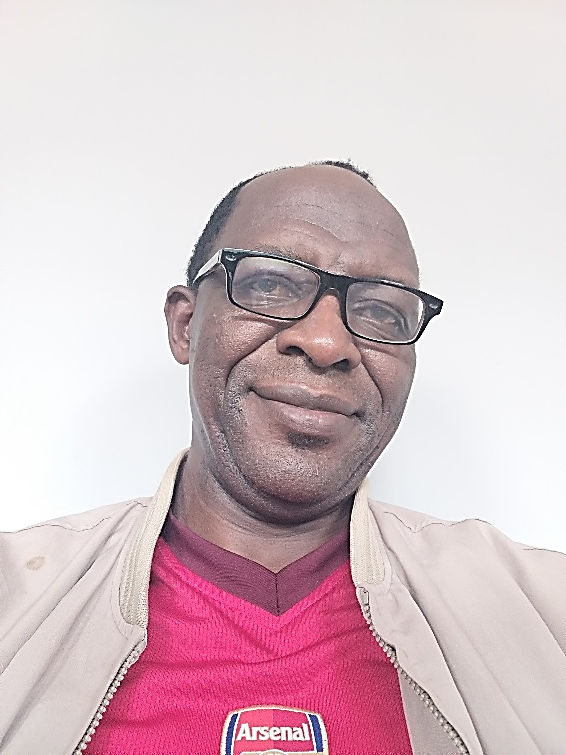
Michel Tchotsoua
Full Professor of Geography and Geomatics, University of Ngaoundéré, Cameroon.
Director of Geomatic’s Lab and Président of ACAGER.
Speech:
TBD
Michel Tchotsoua is Full Professor at the University of Ngaoundéré in Cameroon. Authorized to lead research in Geography / Geomatics by the University of Orleans in France, he is author and / or co-author of 60 scientific articles, 10 book chapters and 08 books on management issues territories and development of Africa, the most recent of which are: 1. Africa can finally leave. Geostrategy and geomatics for controlled development. Press of the Panafrican Institute of Development, Geneva-Yaoundé, 2015, 229 p. http://www.ipd-aos.org. 2. Family Farming and Development in Africa, Int. J. Adv. Stud. Res. Africa. http://www.africascience.org, 2015,176p. Knight in the Order of Merit of Cameroon, Michel Tchotsoua is also a member of the Cameroon Academy of Sciences. He has directed 15 Ph.D theses on health, resource management and land use planning issues. He is in charge of the Geomatics Laboratory and coordinator of the FOAD-GAGER Master (http://gager-undere.auf-foad.org) at the University of Ngaoundere. He is the President of the Association for Mapping and Resource Management (http://acager.org). With the support of the World Bank, he conducted a study that let to the production of an Atlas of Resilience and Adaptation to the Risk of Flooding and Rockfall in the City of Ngaoundere. 3. Atlas of resilience and adaptation to the effects of climate change in Ngaoundéré (Cameroon). http://acager.org, 2019, 123 p.
Michel Tchotsoua est Professeur Titulaire à l’Université de Ngaoundéré au Cameroun. Habilité à Diriger des Recherches en Géographie / Géomatique par l’Université d’Orléans en France, il est auteur et/ou co-auteur de 60 articles scientifiques, de 10 chapitres d’ouvrages et de 08 ouvrages portant sur les questions d’aménagement des territoires et de développement de l’Afrique, et dont les plus récentes sont: 1. L’Afrique peut enfin bien partir. Géostratégie et géomatique pour un développement maitrisé. Presse de l’Institut Panafricain de Développement, Genève-Yaoundé, 229 p. http://www.ipd-aos.org. 2. Agricultures familiales et développement en Afrique, Int. J. Adv. Stud. Res. Africa. http://www.africascience.org, 176p. Chevalier dans l’Ordre du Mérite Camerounais, Michel Tchotsoua est, par ailleurs, membre de l’Académie des Sciences du Cameroun. Il a dirigé 15 thèses de doctorat Ph.D sur des questions de santé, de gestion des ressources et d’aménagement des territoires. Il est responsable du Laboratoire de Géomatique et coordonnateur du Master FOAD–GAGER (http://gager-undere.auf-foad.org) à l’Université de Ngaoundéré. Il est le président de l’Association pour la Cartographie et la gestion des ressources (http://acager.org). Avec le soutien de la Banque Mondiale, il a conduit une étude qui a permis de produire un Atlas de la résilience et l’adaptation aux risques d’inondation et d’éboulement de blocs rocheux dans la ville de Ngaoundéré. 3. Atlas de la résilience et d’adaptation aux effets de changements climatiques à Ngaoundéré (Cameroun). http://acager.org, 123 p.
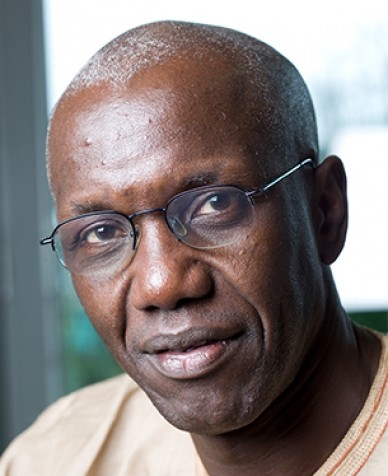
Ibrahima Thioub (Vice-President)
President of Cheikh Anta Diop University (UCAD) in Dakar
Speech:
TBD
Ibrahima Thioub is President of Cheikh Anta Diop University (UCAD) in Dakar, and Professor of History at the Faculty of Letters and Humanities at Cheikh Anta Diop University (UCAD) in Dakar. He is specialised in West African history, with a focus on history of dominations and their ideologies, African historiography, history of prisons and confinement, history of slavery in african societies and slave trade. He has worked on urban marginalised people in Senegal. He has published on the history of urban groups of music at Saint-Louis and Dakar. He co-edited in December 2019 a volume titled New Orleans, Louisiana, and Saint-Louis, Senegal: Mirror Cities in the Atlantic World, 1659-2000s, Louisiana State University Press.
He has more than 40 years of experience in teaching, from elementary to higher education. He masters three langages : Wolof, French and English. He is a member of the editorial staff of several scientific journals. He is member of several academic institutions including the West African Research Association which he chairs and the Association of African Historians of which he was a member of the board. He is Associate fellows of the Institute for Advanced Studies in Nantes (France) and resident fellow of Wissenschaftskolleg zu Berlin (Germany). He heads the Groupe d’Etudes et de Recherches sur la Marginalité et l’Exclusion au Sénégal (GERMES). He founded and leads the Centre Africain de Recherche sur les Traites et les esclavages (CARTE).
Since 2014, he is the Vice-Chancelor of Cheikh Anta Diop University of Dakar. He is an honorary doctor of the University of Nantes, the University of Bordeaux-Montaigne and Sciences Po Paris.
Ibrahima Thioub est professeur d'histoire en poste à la Faculté des Lettres et Sciences humaines de l'Université Cheikh Anta Diop de Dakar. Il est spécialisé dans l'histoire de l'Afrique de l'Ouest. Ses recherches et enseignements portent sur l’écriture de l’histoire en Afrique, les systèmes de domination, leurs appareils et idéologies, les esclavages et les traites, les prisons en Afrique. Il a travaillé sur les marges urbaines au Sénégal. Il a publié sur l'histoire des groupes de musique à Saint-Louis et Dakar. Il a co-édité en décembre 2019 un volume intitulé New Orleans, Louisiana, and Saint-Louis, Senegal: Mirror Cities in the Atlantic World, 1659-2000s, Louisiana State University Press. Il a plus de 40 ans d'expérience dans l'enseignement, de l'élémentaire à l'enseignement supérieur. Il maîtrise trois langues : le wolof, le français et l'anglais. Il est membre de la rédaction de plusieurs revues scientifiques, d’institutions académiques dont l’Association Ouest-Africaine de Recherches qu'il préside et l'Association des Historiens Africains dont il a été membre du bureau. Il est chercheur associé de l'Institut des Etudes Avancées de Nantes (France) et chercheur résident au Wissenschaftskolleg zu Berlin (Allemagne). Il a dirigé le Groupe d’Etudes et de Recherches sur la Marginalité et l’Exclusion au Sénégal (GERMES). Il a fondé et dirige le Centre Africain de Recherche sur les Traites et les Esclavages (CARTE). Depuis 2014, il est le recteur de l'Université Cheikh Anta Diop de Dakar. Il est docteur honoris causa de l'Université de Nantes, de l'Université de Bordeaux-Montaigne et de Sciences Po Paris.
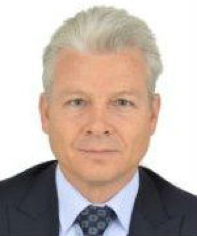
Rafael Tuts (Co-President)
Director/Directeur, Programme Division/Division des programmes UN-Habitat/ONU-Habitat, Nairobi, Kenya
Rafael Tuts is Director of the Programme Division of UN-Habitat, based at its Headquarters in Nairobi, Kenya. He is overseeing the work of UN-Habitat’s seven thematic branches and four regional offices. From 2012 to 2016 he was the coordinator of the Urban Planning and Design Branch of UN-Habitat, promoting compact, integrated and connected cities that are inclusive and resilient to climate change. From 2014 to 2016 he was also overseeing the Housing and Slum Upgrading Branch of UN-Habitat, focusing on the ‘Housing at the Centre’ approach and the Participatory Slum Upgrading Programme. Earlier assignments at UN-Habitat include his role as manager of the Localising Agenda 21 Programme, as a contributor to the Global Campaign on Urban Governance and as Chief of the Training and Capacity Branch. Following the Rio+20 Conference, he coordinated UN-Habitat’s engagement in formulating the Sustainable Development Goals, including SDG-11 on ‘making cities and human settlements inclusive, safe, resilient and sustainable’. He authored and co-edited several publications on a wide range of sustainable urban development topics, including ‘Urban Trialogues’, a book reflecting on urban space as a resource for sustainable development, based on work in Morocco, Kenya, Vietnam and Cuba. Together with colleagues from the World Bank, UNEP and Cities Alliance, he received the World Bank Vice-President Team Award in 2011 for global partnership building on Cities and Climate Change. He also received ISOCARP’s 50th Anniversary Award in 2015, in recognition of UN-Habitat’s urban planning work. Before joining UN-Habitat in 1995, he worked for the Department of Architecture, Urbanism, and Planning of the University of Leuven in Belgium and the Housing Research and Development Unit of the University of Nairobi. In 1985, he obtained a Masters of Science degree in Architectural Engineering from the University of Leuven. In December 2016, he was awarded the title of Honorary Professor from the same university.
Rafael Tuts est Directeur du la division des programmes pour ONU-Habitat dont le siège social se retrouve à Nairobi au Kenya. Il supervise le travail des sept branches thématiques et quatre bureaux régionaux d’ONU-Habitat. De 2012 à 2016, il a été coordinateur du bureau de planification urbaine et d’aménagement d’ONU Habitat , qui fait la promotion des villes compactes, intégrées et connectées qui sont inclusives et résilientes au changement climatique. De 2014 à 2016 il a aussi supervisé le bureau de logement et bidonvilles d’ONU-Habitat, qui se concentre sur l’approche « Housing at the Centre » et un programme participatif sur l’amélioration des bidonvilles. Ses mandats précédents à ONU-Habitat incluent son rôle de gestionnaire du « Localising Agenda 21 Programme » en tant que contributeur à la campagne mondiale pour la gouvernance urbaine et de Chef du bureau de l’enseignement et de la capacité. Suite à la Conférence Rio+20, il a coordonné l’engagement de ONU-Habitat à formuler des buts en développement durable, incluant SDG-11 pour « faire en sorte que les villes et les établissements humains soient ouverts à tous, sûrs, résilients et durables ». Il a été auteur et a co-édité plusieurs publications sur une variété de thèmes reliés au développement durable urbain, y compris « Urban Trialogues », un livre qui reflète l’espace urbaine comme une ressources pour le développement durable, suite aux travaux effectués au Maroc, Kenya, Vietnam et Cuba., Avec des collègues de la Banque Mondiale, PNUD et Cities Alliance, il a reçu le prix du Vice-Président de la Banque Mondiale en 2011 pour son partenariat global « Cities and Climate Change ». Il a aussi reçu le prix du 50eAnniversaire d’ISOCARP en 2015, en reconnaissance du travail la planification urbaine d’ONU-Habitat. Avant de se joindre à ONU-Habitat en 1995, il a travaillé pour le département d’architecture, urbanisme, et planification de l’Université de Leuven en Belgique, et le « Housing Research and Development Unit » de l’Université de Nairobi. En 1985, il a obtenu une Maîtrise en Science en génie architectural de l’Université de Leuven. En décembre 2016, il a nommé Professeur Honoraire de cette même université.
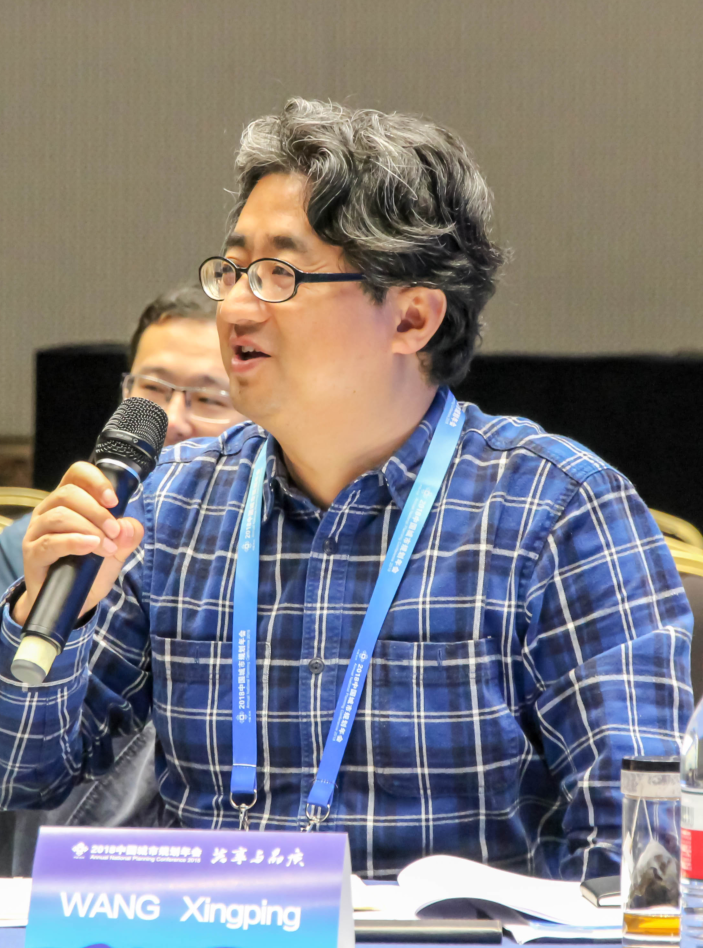
Xingping Wang
Professor and Director of Research Institute of Region and Urban Development, Southeast University, China
Thematic Areas 7:
Industrial Parks, Agro-processing Zones and Urban Transformation
Dr. Wang Xingping received his Doctor of Science Degree from Nanjing University in China in 2003, now acted as professor and director of Research Institute of Region and Urban Development in Southeast University. He is Ph.D. Supervisor in Southeast University and National Registered Professional Planner. He has rich experience and knowledge in the urban planning study and practice and won the title of National Excellent Urban Planning Science and Technology Worker in 2018. As project leaders, he has been involved in nearly 100 research and planning projects concerning regional planning, urban master planning, industrial park planning, etc. He has been responsible for series of national or provincial research programs, including one National Key R&D Program, one Key Program of the National Social Science Fund of China, two Programs of the National Natural Science Foundation of China and seven provincial research projects, etc. He has published 10 monographs and more than 90 papers covering a wide range of academic fields including regional development, planning theories and methodology, history of region and urban planning, new urbanism, China economic development zones, international cooperation industrial parks, China-Africa cooperation, etc. And he is the senior visiting scholar of Massachusetts Institute of Technology (MIT) in the USA and Queen’s University in Canada, and the Guest Professor of Addis Ababa University in Ethiopia. Dr. Wang is the Chief Scientist, The National Key R&D Program of China Research Cooperation and Exemplary Application in Planning of Overseas Industrial Parks.
王兴平教授,本硕博均毕业于南京大学人文地理专业区域与城市规划方向,美国麻省理工大学高级研究学者,加拿大女王大学访问学者,埃塞俄比亚亚的斯亚贝巴大学客座教授。现为东南大学建筑学院城市规划系教授、博士生导师,高级城市规划师,国家注册城市规划师,东南大学区域与城市发展研究所所长,东南大学城乡规划与经济社会发展研究中心主任。兼任中国城市规划学会城市规划历史与理论学术委员会副秘书长,中国自然资源学会资源型城市专业委员会副主任,中国区域科学协会区域与城市规划专业委员会副主任,江苏省城市经济学会副会长兼城市规划与经济发展专业委员会主任。主要研究方向为区域与城乡总体规划、产业园区和城市创新空间发展与规划等。先后入选教育部“新世纪优秀人才支持计划”、江苏省“333高层次人才培养工程”和“青蓝工程”中青年学术带头人培养对象。王兴平教授在城乡规划领域具有非常系统、丰富的学术积累和规划设计业绩,截至目前已主持或参与科研项目、区域与城乡规划设计项目100余项,其中主持在研国家重点研发计划项目1项、江苏省社科重点基金项目1项,主持完成国家社会科学基金重点项目1项、国家自然科学基金项目2项,作为第2参加人以及专项负责人参与完成国家自然科学基金项目共2项。目前已公开发表学术论文90余篇,出版学术专著6部,参编学术著作4部,参与制定国家标准制定1项,并于2018年荣获“第五届全国优秀城市规划科技工作者”称号。国家重点研发计划战略性国际科技创新合作重点专项“境外产业园区规划技术合作研究与示范应用”首席科学家。
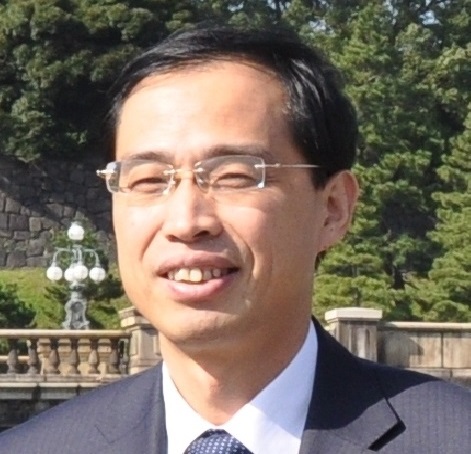
Rong YANG / 杨榕 (Vice-President)
Inter-Regional Advisor (区域间事务顾问)
Focal point of UN-Habitat with Government of China; (联合国人居署中国事务协调人)
Technical Advisory Branch, Programme Division, UN-Habitat. (联合国人居署项目计划司)
Rong Yang is the Inter-Regional Advisor working at Programme Division of UN-Habitat based at its Headquarters in Nairobi, Kenya, and involving in UN-Habitat project cycle management in Programme Division since 2016. He is also the focal point of UN-Habitat with Government of China and in charge of coordinating the general matters of cooperation with China including World Cities Day Celebration, International conference and training focusing on knowledge exchange regarding sustainable urbanization, cooperation project development and implementation with Chinese partners, collaboration based on Belt and Road Initiative (BRI) and South-South Cooperation Assistant Fund etc. From 2008 to 2016, Mr. Rong Yang used to work as Director-General of Center of Science & Technology and Industrialization, and Director-General of Department of Building Energy Efficiency And Science & Technology in the Ministry of Housing and Urban-Rural Development (MOHURD) of China, was mainly focusing on promoting development of green building, building energy efficiency, smart city, advanced building technology application and related international cooperation in China. From 2001 to 2003, he used to be the Deputy Permanent Representative of China Mission to UN-Habitat.

John Zacharias
Chair Professor, Peking University, Beijing, China
Keynote Speech:
La nécessaire réurbanisation en Chine face aux nouveaux défis de la santé publique
Dr. John Zacharias is currently Chair Professor at Peking University where he runs the Laboratory on Urban Process Modelling and Applications. He is interested in people-environment relations, with a focus on urban planning, transport planning and urban design. How people respond to the planned and designed environment is studied using observation, remote sensing, and participation of sample populations in surveys and experiments. How people perceive the planned environment is also examined. While the studies have a basic scientific approach and are published in the leading international journals in these fields, they are conducted with an eye to policy formulation. At Peking University, he teaches research methodology for students of the planning sciences, leads a seminar course in planning theory and supervises graduate students in the preparation of their graduation theses. He is frequently asked to speak at city planning bureaux and their related institutes and also to offer comments on specific plans and projects. Prior to his appointment at Peking University in 2012 he was longtime Director of the Urban Studies Programme and the Urban Planning Programme, housed in the Department of Geography, Planning and Environment, where he also served as Chair for several years. He served on the Commission de la Représentation Électorale du Québec from 2005 to 2010. His Ph.D. was awarded by the Université de Montréal in 1990, where he also co-taught an urban planning laboratory for the Institut d’urbanisme, during the years of his doctoral research. He also worked in the administration of McGill University as a liaison person with the Gouvernement du Québec in the mid-1980s. His earlier career as an urban planner was with the City of Vancouver and the British Columbia government, following his graduate degree in urban planning from the University of British Columbia.
